TOTAL RECALL - The Evolution of Memory
The TOTAL RECALL theme symposium made up of three sessions on Friday, September 6th and Sunday, September 8th leads this year’s Ars Electronica Festival conference program.
Panel 1
Fri 6. 9. 10:00 – 13:30
Brucknerhaus
Following opening remarks by Ars Electronica artistic director Gerfried Stocker, the first session will begin with a look at and inside the site of human memory: our brain. Neuroscientist John Dylan Haynes will provide an introduction to the latest research on cognition and the brain. He’ll screen selected scenes from some classic science-fiction films—including “Total Recall,” of course—to portray the current state of research in neuroscience and future prospects in this field.
From Remembering to Forgetting
Mapping the network of nerves in the human brain will be the subject of a speech by neuroscientist Alfred Anwander of the Max Planck Institute for Human Cognitive and Brain Sciences. He’ll report on diffusion tensor imaging and connectome research, methods scientists are now using to better understand human memory.
In light of these insights into the latest research into the brain, the symposium will turn to the selective character of remembrance and the various forms of forgetting.
Aleida Assmann, a scholar in the fields of literary studies, will analyze the omnipresence of the past, which, thanks to new media and virtually unlimited data storage capabilities, can be accessed anytime, anywhere.
Arno Villringer, likewise a staff neuroscientist at the Max Planck Institute for Human Cognitive and Brain Sciences, will then discuss the loss of memory and go into dementia from neurological and clinical perspectives, and author/interpreter Helga Rohra, a woman suffering from Lewy Body Dementia, will give an account of daily life with this condition.
10:00 – 10:20 Intro GS
10:20 – 11:00 John-Dylan Haynes
11:00 – 11:30 Aleida Assmann
11:30 – 11:55 Alfred Anwander
11:55 – 12:25 Q+A und Pause
12:25 – 12:50 Arno Villringer
12:50 – 13:15 Helga Rohra
13:15 – 13:30 Q+A
Fri 6. 9. 10:00 – 13:30
Brucknerhaus
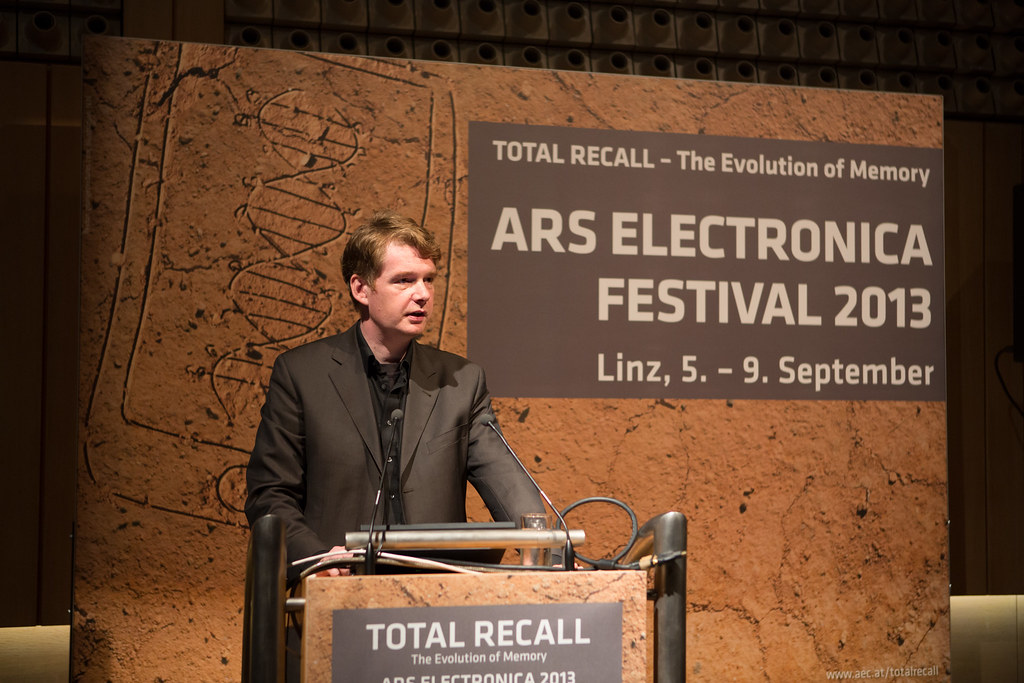
John-Dylan Haynes (UK/DE) is a psychologist, neuroscientist and Professor of Theory and Analysis of Large-Scale Brain Signals at the Bernstein Center of Charité Berlin. Haynes and his team conduct research on the neuronal basis of consciousness, volition, intentions and free will. They have used MRI technology to show that decision-making is initiated by subconscious brain processes.
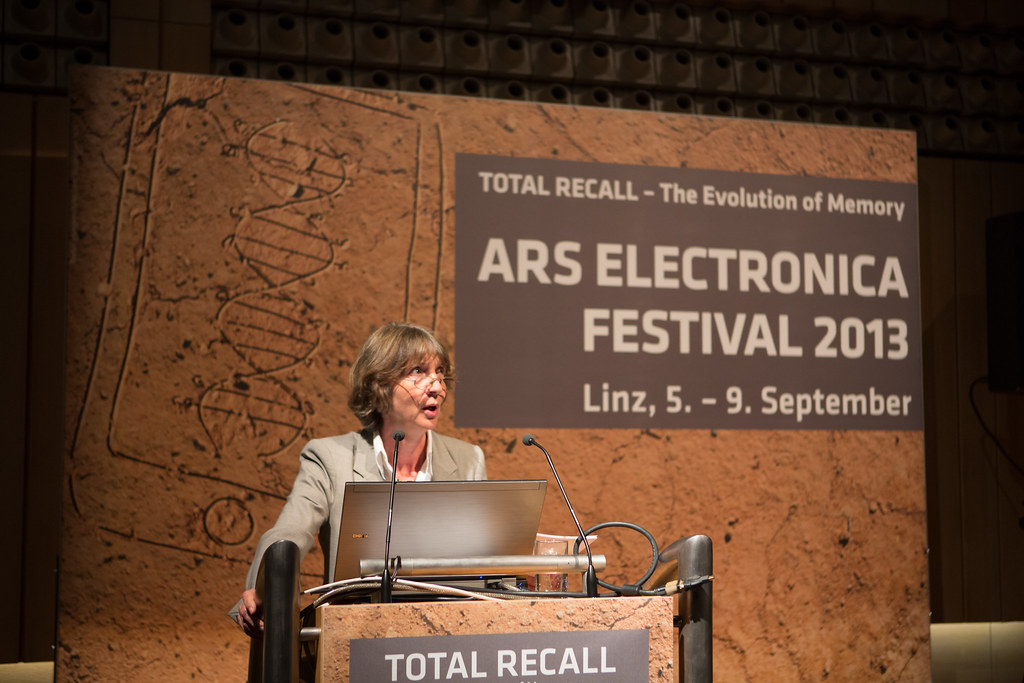
Aleida Assmann (DE) is a neuroscientist and connectome researcher at the Max Planck Institute for Human Cognitive and Brain Sciences in Leipzig who is making important contributions to research on anatomic linkages with an emphasis on language networks in the brain and learning to speak.
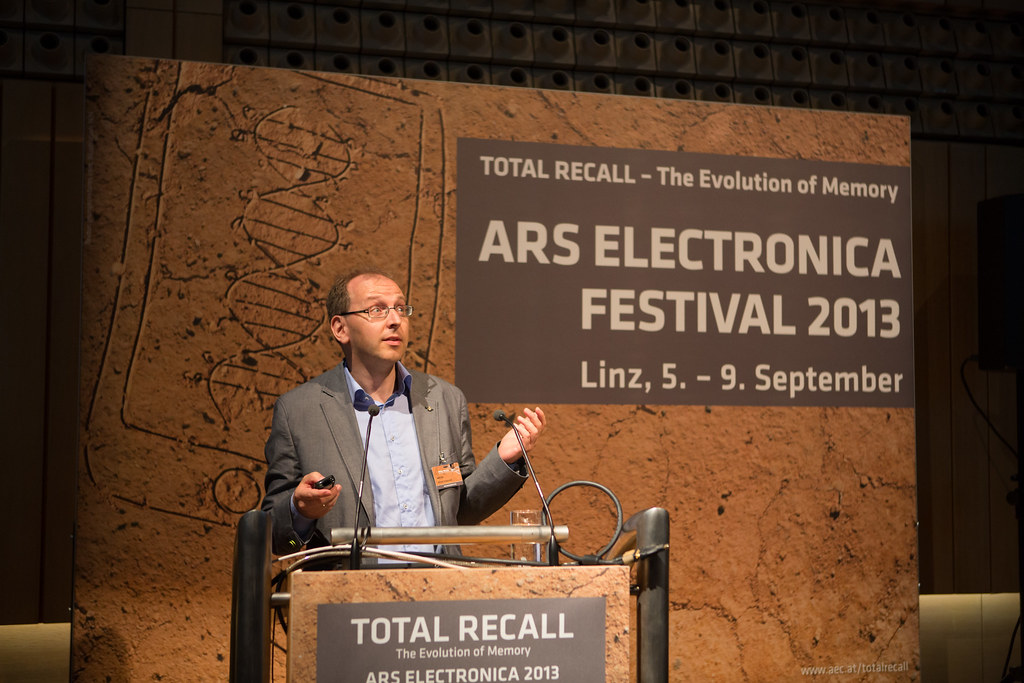
Alfred Anwander (DE) is a neuroscientist and connectome researcher at the Max Planck Institute for Human Cognitive and Brain Sciences in Leipzig who is making important contributions to research on anatomic linkages with an emphasis on language networks in the brain and learning to speak.
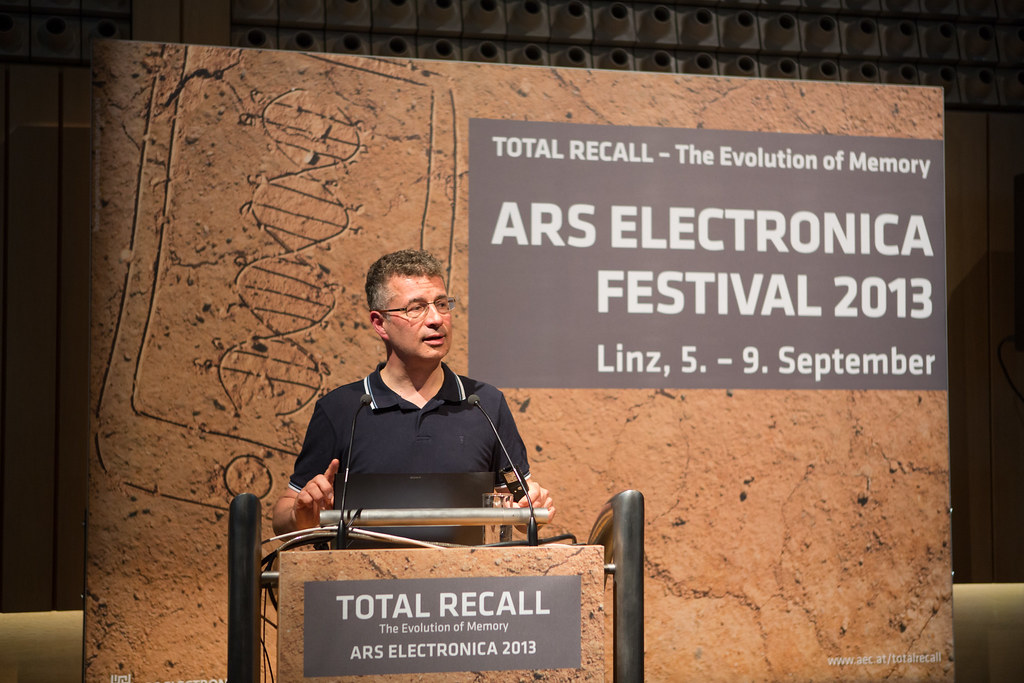
Arno Villringer (DE) is a neuroscientist at the Max Planck Institute for Human Cognitive and Brain Sciences in Leipzig. Among his fields of research are neurophysiological processes in the brain activity of human beings as well as regeneration processes in the brain—for example, after a stroke.
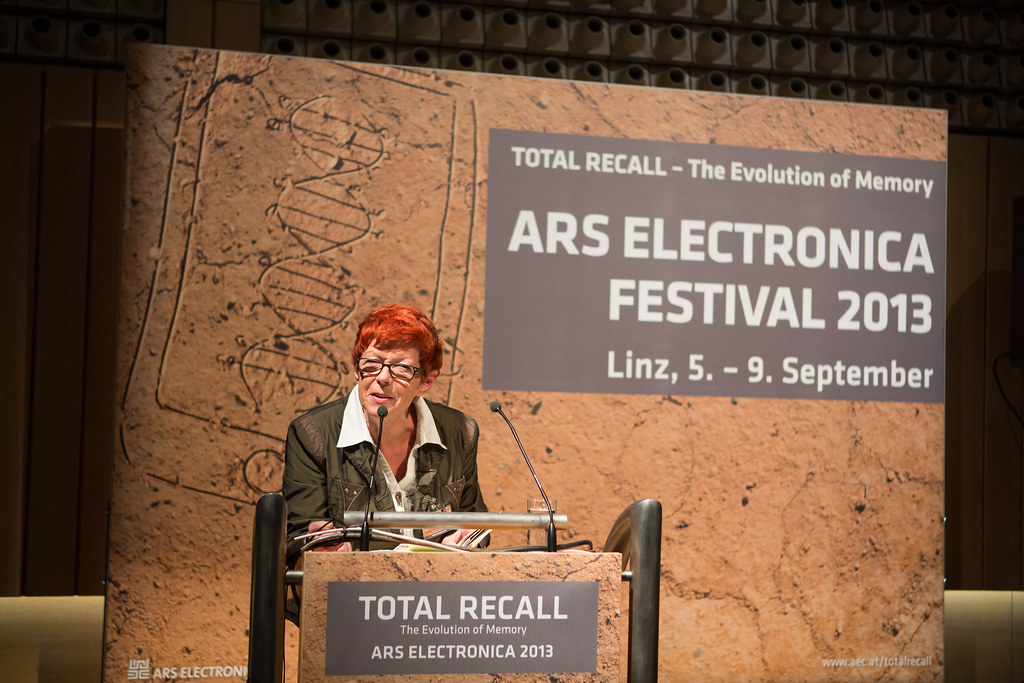
Helga Rohra (DE) is an interpreter and author. She has come out as someone suffering from dementia and is an activist on behalf of her fellow sufferers.
Panel 2
Fri 6. 9. 14:30 – 18:00
Brucknerhaus
The second session begins with a consideration of nature’s memory, DNA. Biochemist Barbara Hohn will discuss the genetic and epigenetic memory of animals and plants, and particularly elaborate on how they pass on what they remember—from leaf to leaf, for instance, or from parent to offspring.
Mathematician and zoologist Nick Goldman teams up with artist Charlotte Jarvis to consider the prospects of someday using DNA as the perfect data storage medium. And nobody’s better qualified than Goldman, who was a member of a research group that succeeded in converting an mp3 file into DNA and back again.
Cognitive Computing
Another view of the future of memory focuses on the vision of someday being able to computer model human memory. The Synapse Project in the US and the Human Brain Project in Europe are at the forefront. Can a computer learn how a human being thinks? Dharmendra S. Modha, a cognitive computing specialist at IBM, is convinced of this. Via teleconference, he’ll report on his work on computer systems modeled on the human brain.
The many major challenges that have to be overcome in order to simulate the human brain are the grounds for a more skeptical view of this undertaking by Hans Ulrich Dodt, an expert in medicine, physics and bio-electronics at the Vienna University of Technology (AT).
To conclude the first day of the symposium, we’ll return to the neurosciences as well as to art. Rodrigo Quian Quiroga, head of the University of Leicester’s NeuroEngineering Lab, will talk about his research on so-called concept cells—often referred to as Jennifer Aniston neurons—and tell about how his research brought him to the works of the great Argentine author Jorge Luis Borges.
14:30 – 15:00 Barbara Hohn
15:00 – 15:25 Nick Goldman
15:25 – 15:50 Charlotte Jarvis
15:50 – 16:20 Q+A und Pause
16:20 – 16:40 Dharmendra Modha (Tele-Talk)
16:40 – 17:10 Hans-Ulrich Dodt
17:10 – 17:40 Rodrigo Quian Quiroga
17:40 – 18:00 Diskussion
Moderation: Michael Doser (AT/CH)
Fri 6. 9. 14:30 – 18:00
Brucknerhaus
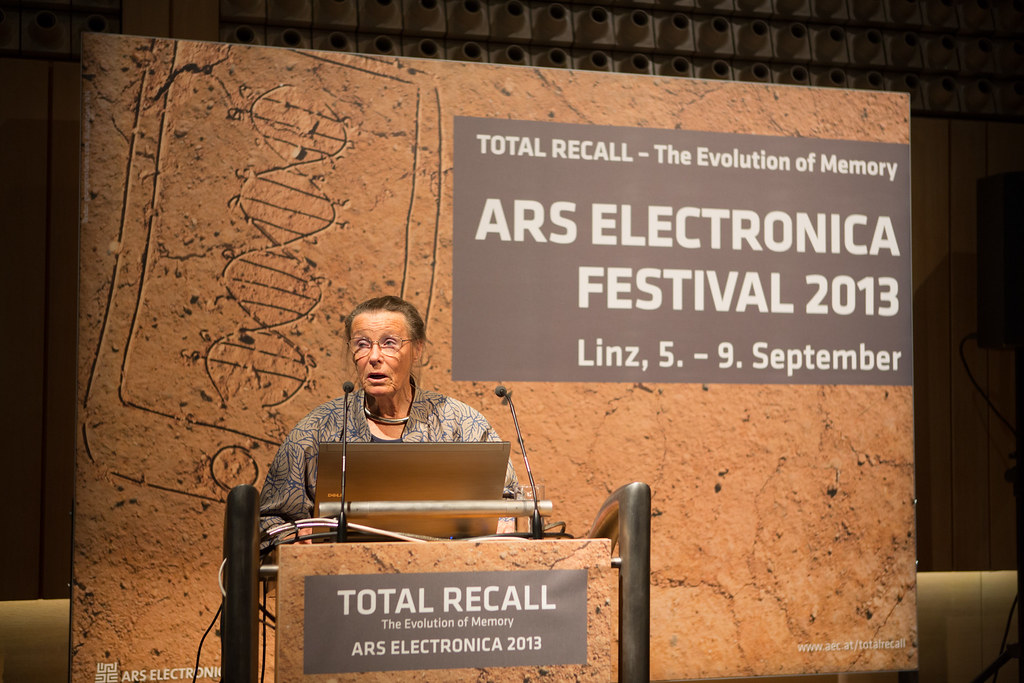
Barbara Hohn (AT/CH) is a biochemist at the Friedrich Miescher Institute in Basel. Her fields of research include genetic expression and recombination as well as environmental influences on the stability of plant genomes.
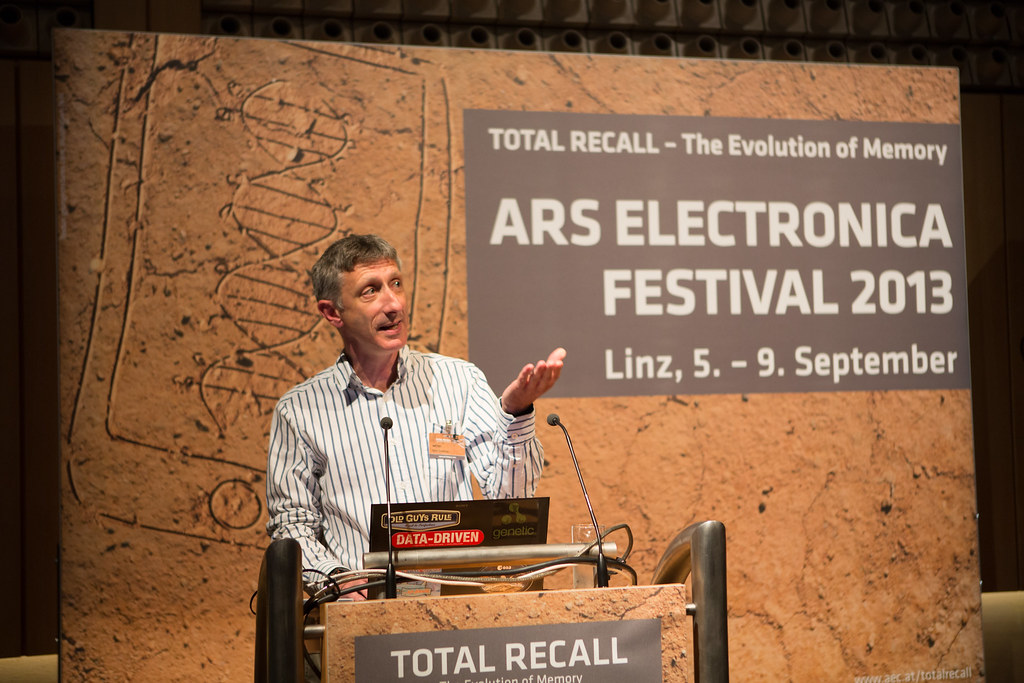
Nick Goldman (UK) works at the European Bioinformatics Institute in Hinxton (UK), researching algorithms to study genome evolution. He holds degrees in mathematics and zoology from the University of Cambridge.
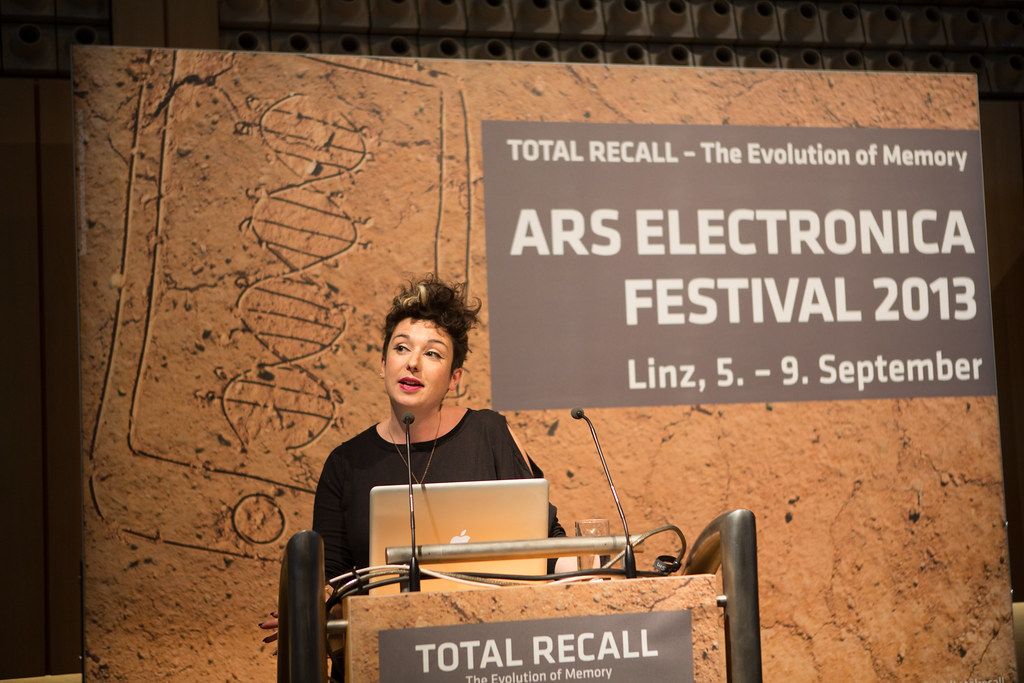
Charlotte Jarvis (UK) is currently artist in residence at The Netherlands Proteomics Centre. Last year they collaborated on the project Blighted by Kenning in which the Universal Declaration of Human Rights was encoded into DNA. This year Charlotte and the NPC are working on Ergo Sum, in which Charlotte will be creating a second self using body parts grown from her stem cells.
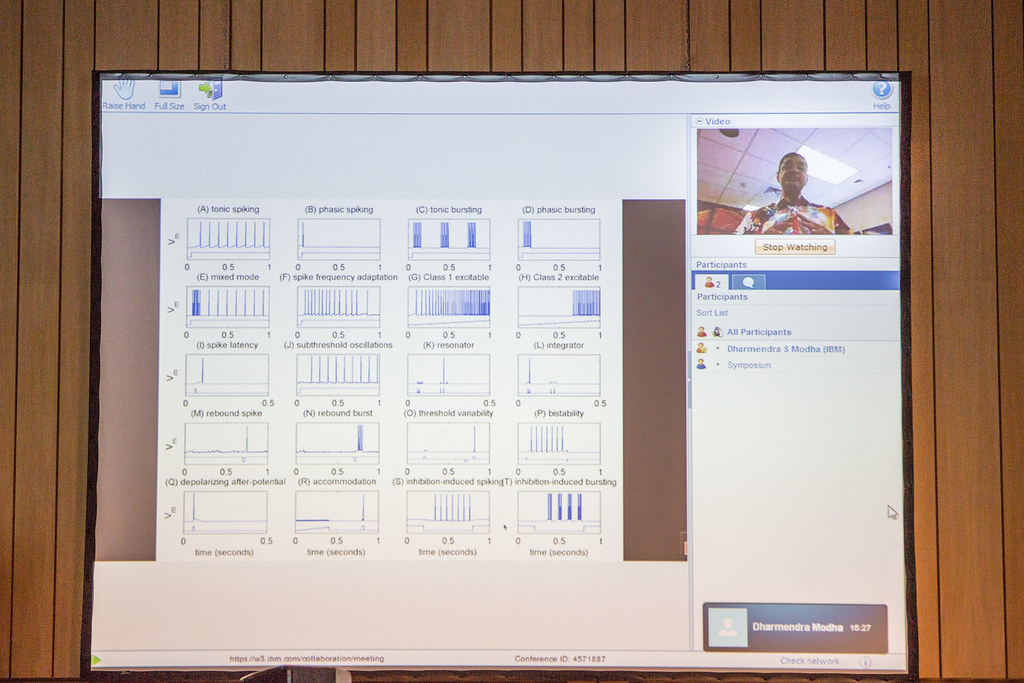
Dharmendra Modha (US) has done pioneering work in the field of artificial intelligence and memory simulation. He set up the Cognitive Computing division at IBM’s Almaden Research Center and heads the DARPA SyNAPSE project. He and his team are working on a computer system that emulates the essential functions and structures of biological brains.
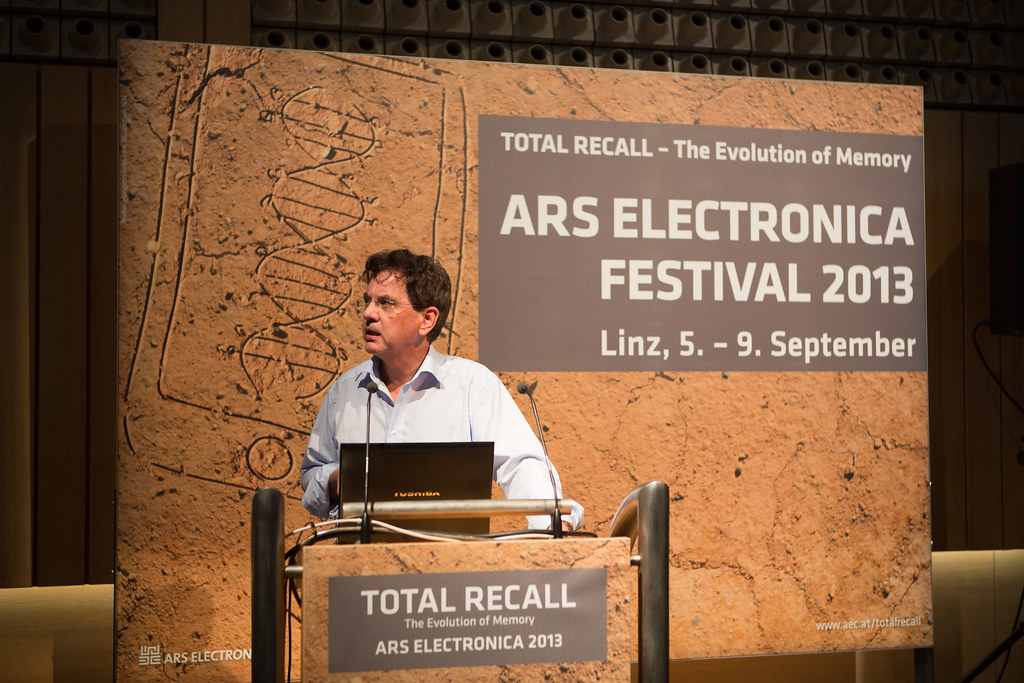
Hans Ulrich Dodt (DE) is professor of solid body electronics at the Vienna University of Technology. He uses optical methods to visualize nerve cells and take 3-D flights through the transparent brain. In his interdisciplinary research field, bioelectronics, he applies approaches from astronomy to problems in neuroscience.
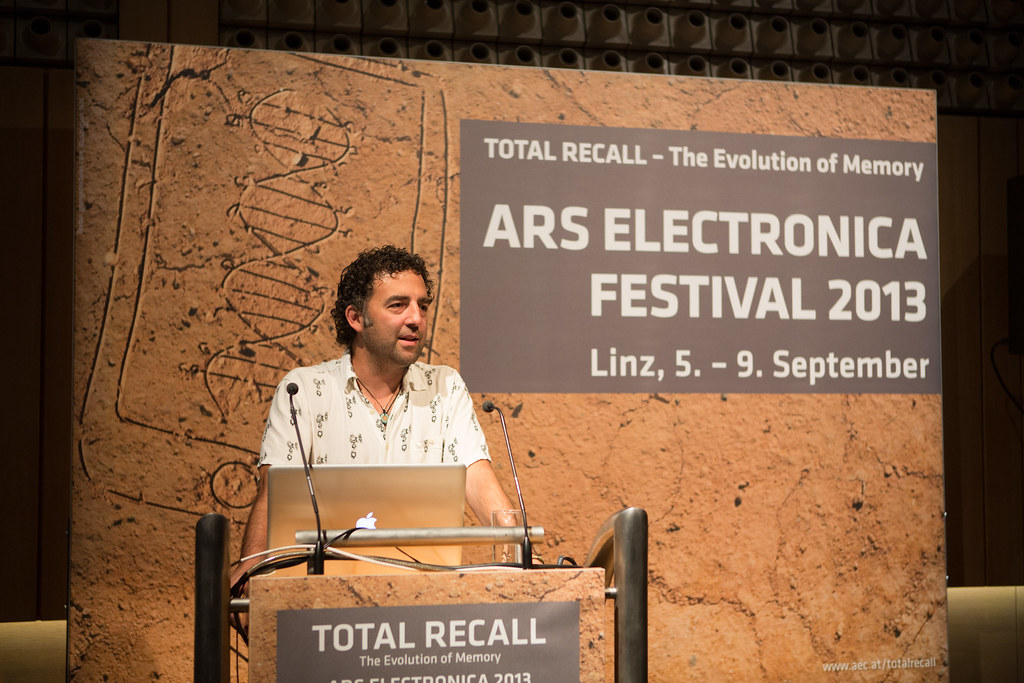
Rodrigo Quian Quiroga (AR) Rodrigo Quian Quiroga is the director of the Centre for Systems Neuroscience and the head of the Bioengineering Research Group at the University of Leicester. His main research interest is on the study of the principles of visual perception and memory. He discovered what has been named “Concept cells” or “Jennifer Aniston neurons”—neurons in the human brain that play a key role in memory formation.
Panel 3
Sun 8. 9. 14:30 – 17:00
Brucknerhaus
The third session will consider the cultural and technological history of memory recording devices. Claudia Schmölders, a scholar in the field of cultural studies, will present her impressive research on the presence or absence of female voices in historical sound archives. Media philosopher Frank Hartmann will take symposium participants back to the early history of Information Society—to the fantastic lifework of Paul Otlet and his ground-breaking prototype of a universal library that’s often called the first forerunner of the internet. Michael Buckland, professor emeritus at UC Berkeley, will recall another pioneer of modern information processing, Emanuel Goldberg. Catapulting us back into the present will be Hiroshi Ishiguro, the star of Japanese robotics research. He’s using robots and androids to preserve the memory of an extraordinary Japanese actor.
14:30 – 15:00 Claudia Schmölders
15:00 – 15:30 Frank Hartmann
15:30 – 15:45 Q+A
15:45 – 16:15 Michael Buckland
16:15 – 16:45 Hiroshi Ishiguro
16:45 – 17:00 Diskussion
Moderation: Xaver Forthuber (AT)
Sun 8. 9. 14:30 – 17:00
Brucknerhaus
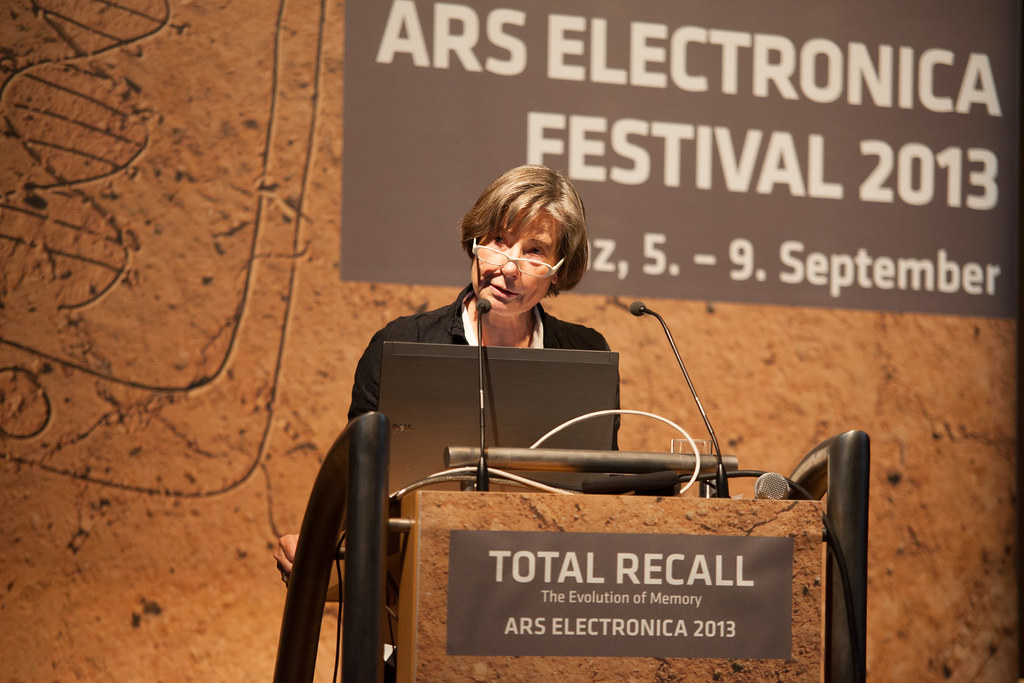
Claudia Schmölders (DE) is an interpreter and author. She has come out as someone suffering from dementia and is an activist on behalf of her fellow sufferers.
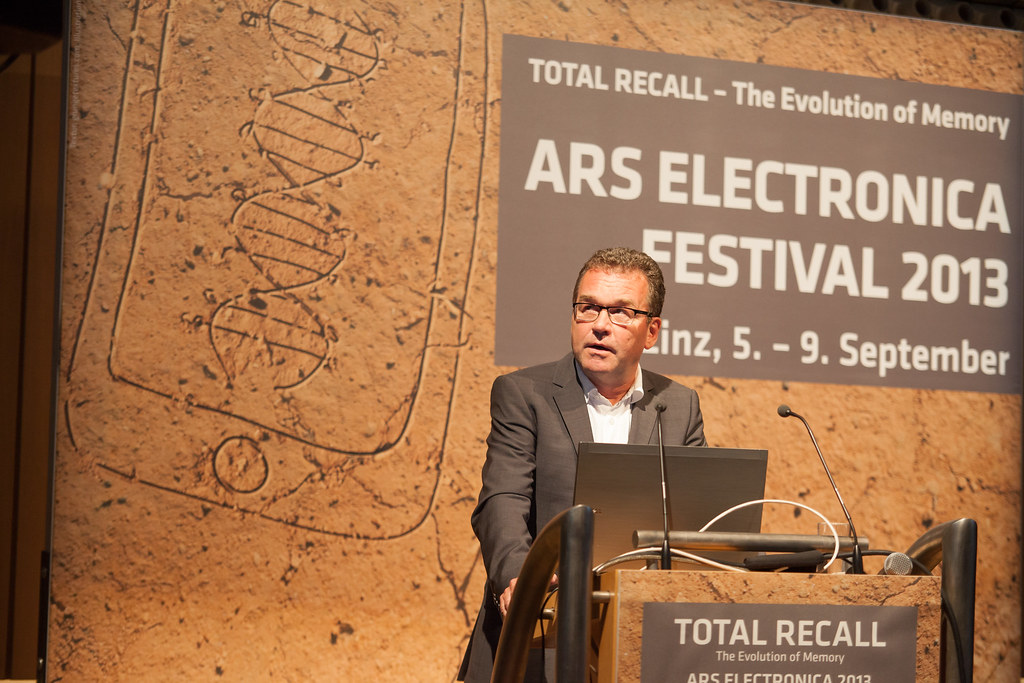
Frank Hartmann (DE) is a media philosopher and professor at the Faculty of Art & Design, Bauhaus-University Weimar, Germany. He has published several book on media theory, media archaeology and visual communication.
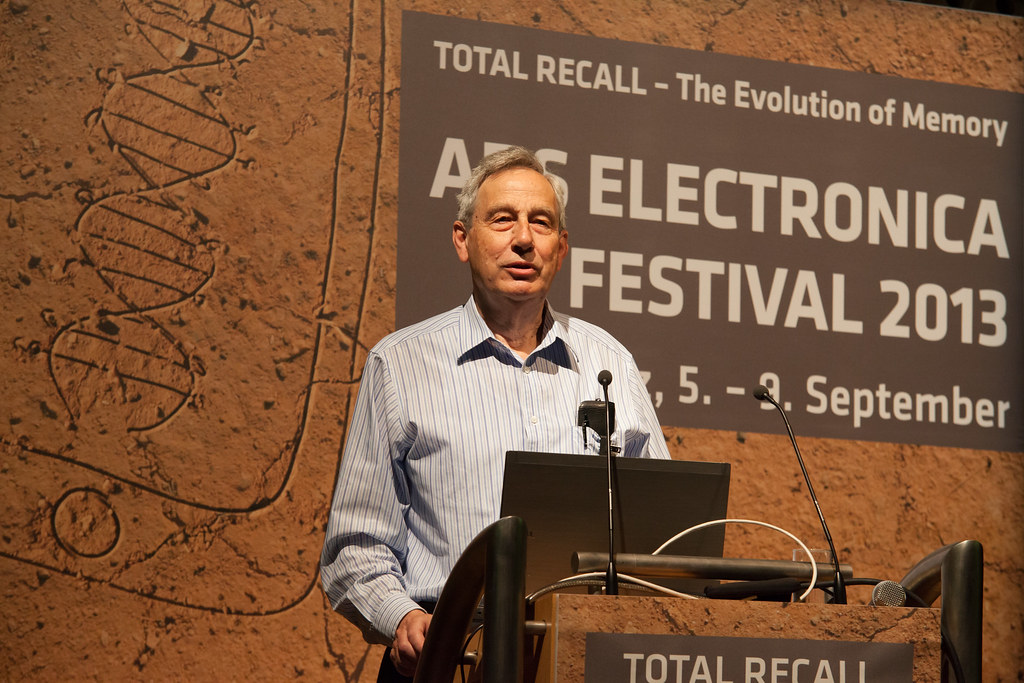
Michael K. Buckland (UK/US) is Emeritus Professor, University of California, Berkeley, School of Information. He has written extensively about library services, the organization of knowledge, and the history documentation.
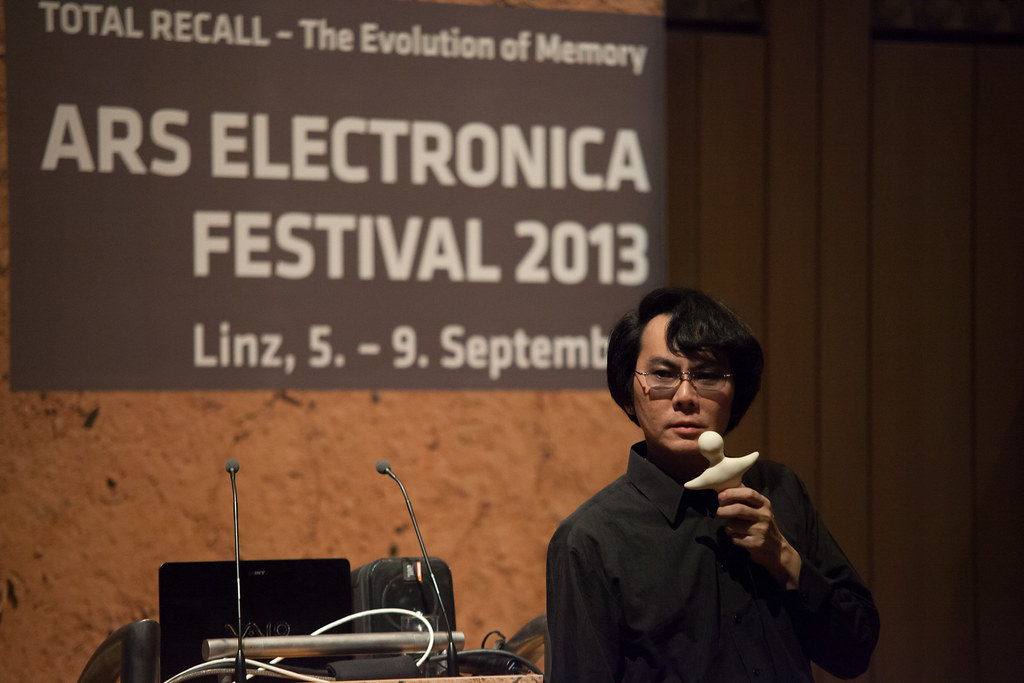
Hiroshi Ishiguro (JP) has been a Professor in the Department of Systems Innovation at the Osaka University since 2009 and Group Leader of the Hiroshi Ishiguro Laboratory at the Advanced Telecommunications Research Institute. His research interests include sensor networks, interactive robotics and android science.
The Prix Forum offer the possibility to meet the winners of Prix Ars Electronica 2013 and hear them talk about their work, motives and motivations. All the talks are held in the Ursulinensaal of the OK Offenes Kulturhaus im OÖ Kulturquartier, the concerts are happening in the Brucknerhaus as part of the Ars Electronica Music Day.
Prix Forum I – Computer Animation / Film / VFX
Suzanne Buchan (CH/UK)
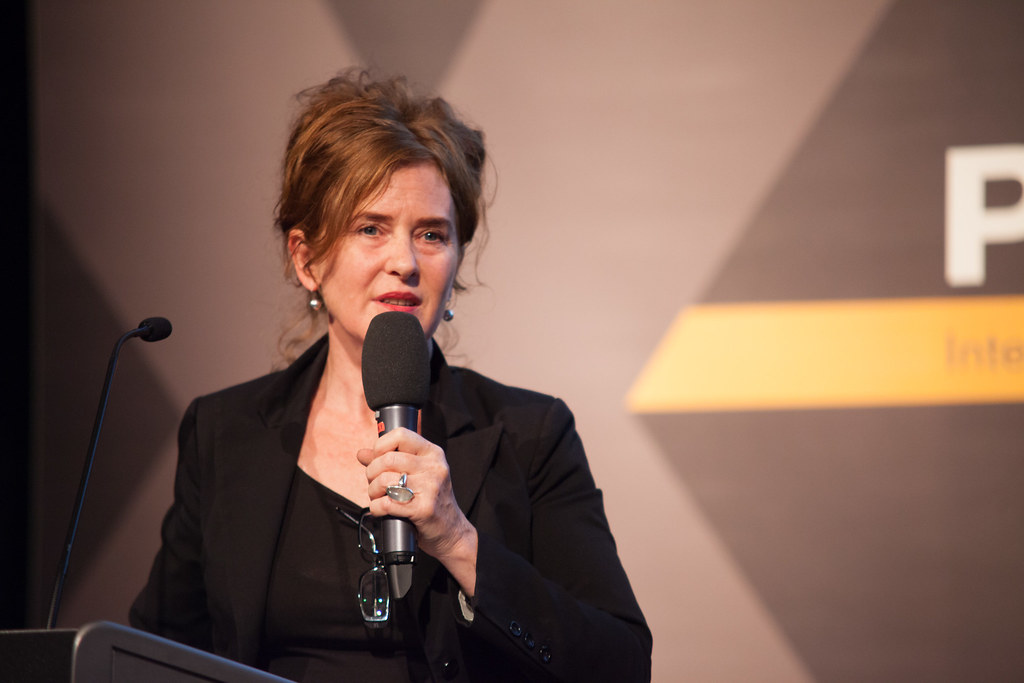
Quayola (IT), Memo Akten (TR)
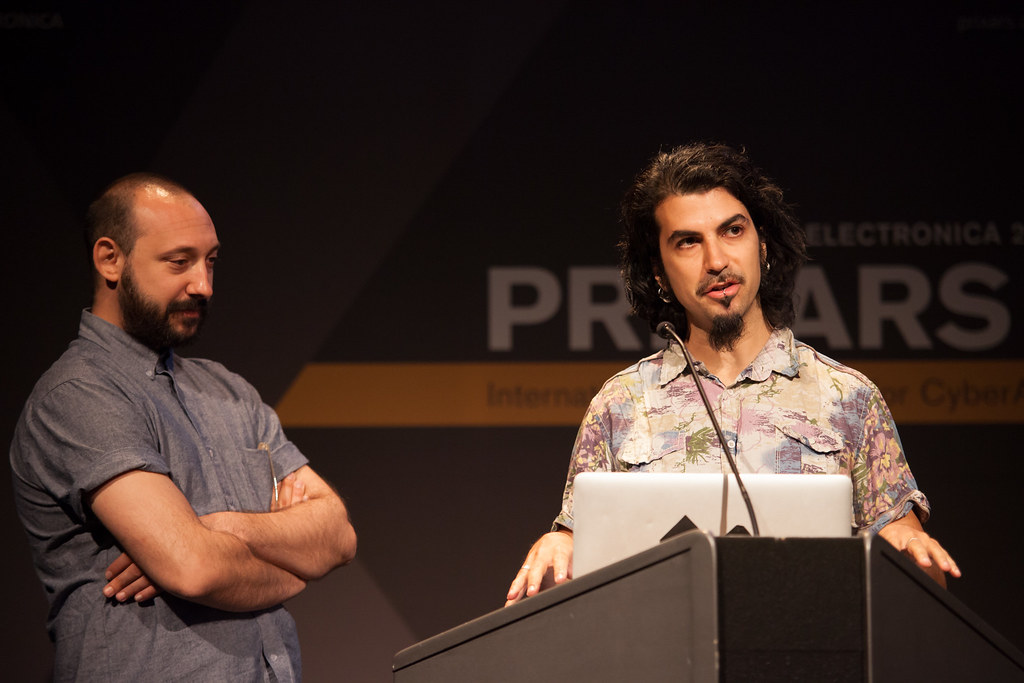
Emma De Swaef (BE)
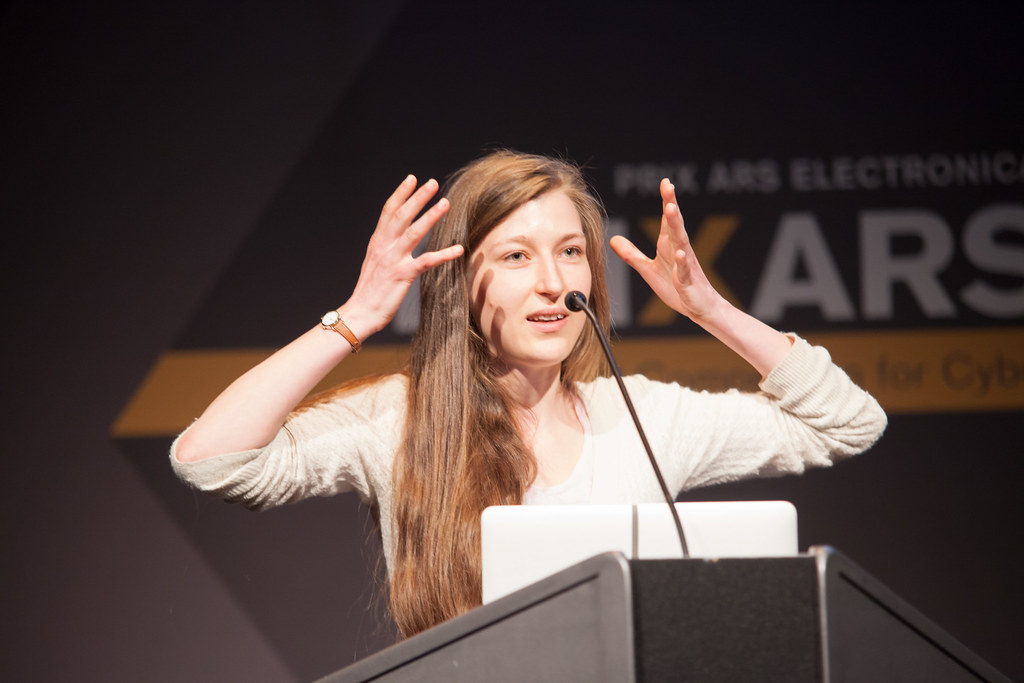
La Mécanique du Plastique (FR)
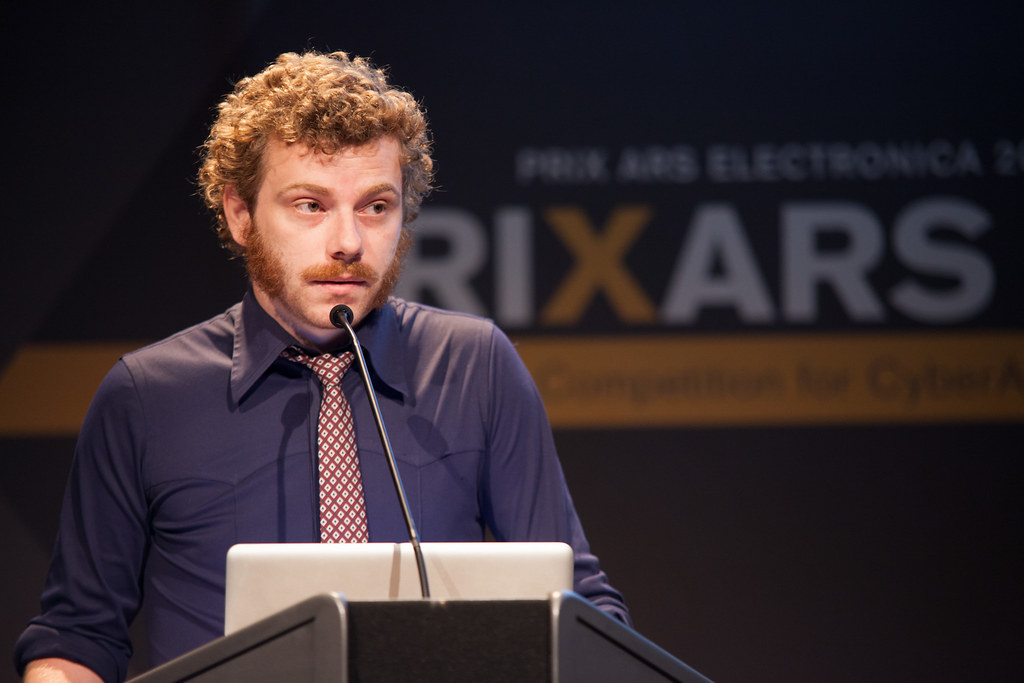
Sat 7. 9. 10:30 – 12:00
Prix Forum II – Interactive Art
Mariano Sardón (AR)
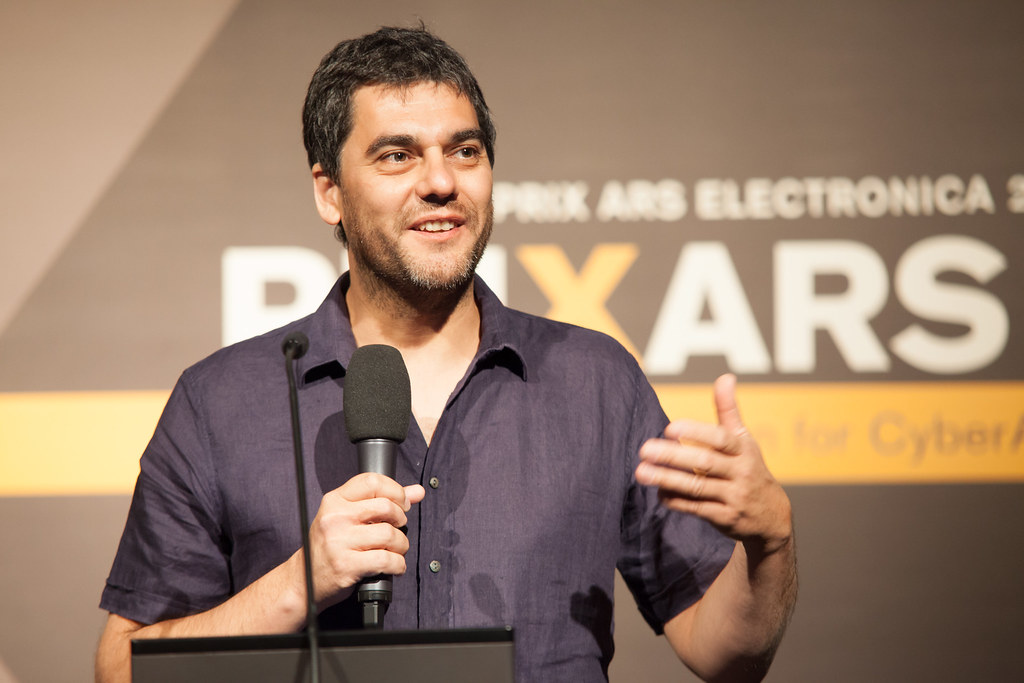
Masaki Fujihata (JP)
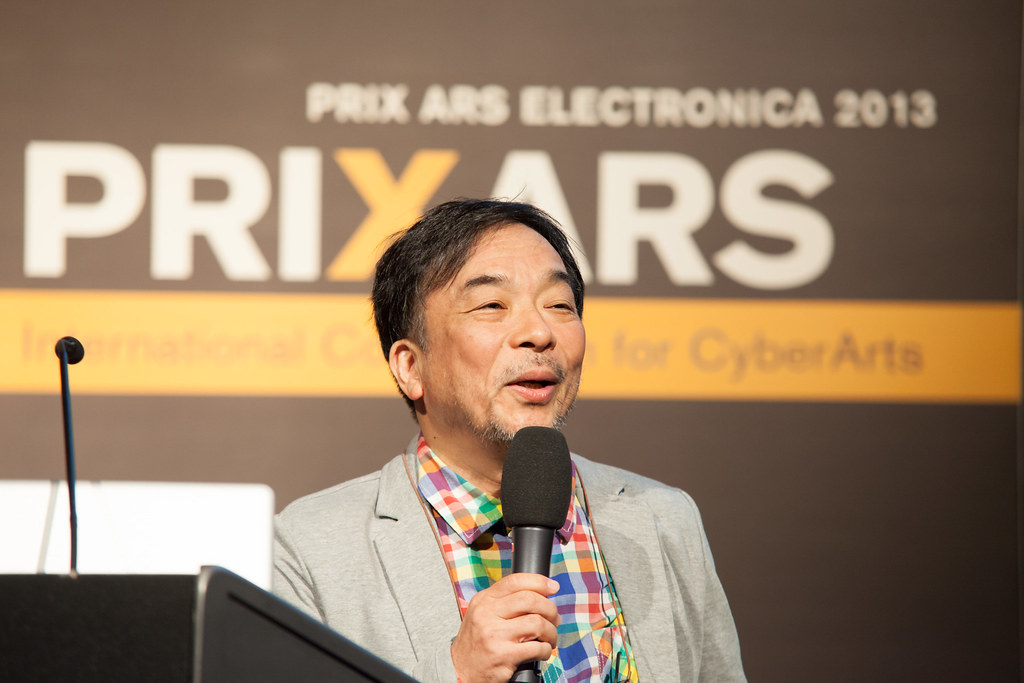
Michel Décosterd (CH), André Décosterd (CH)
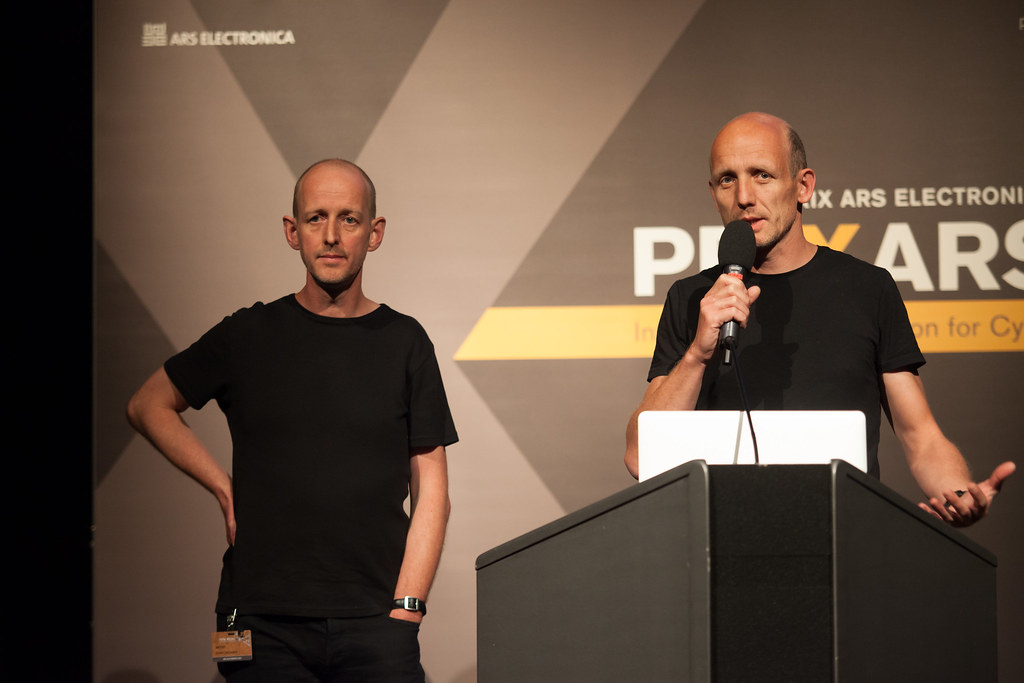
Sat 7. 9. 12:15 – 13:25
Prix Forum III – Digital Communities
Leila Nachawati (ES)
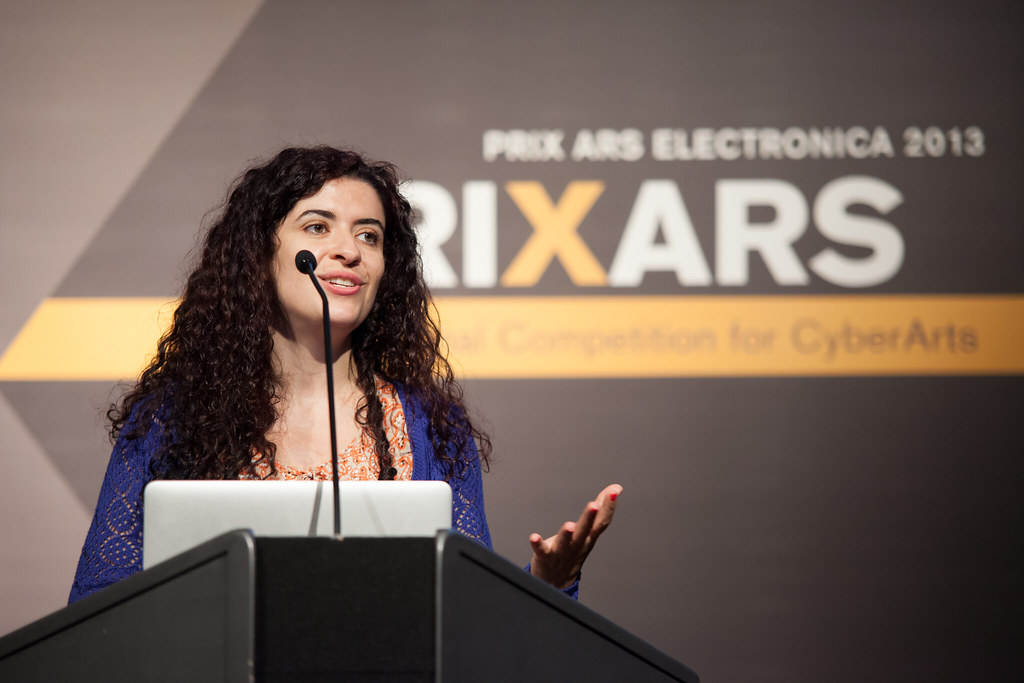
El Campo de Cebada (ES)
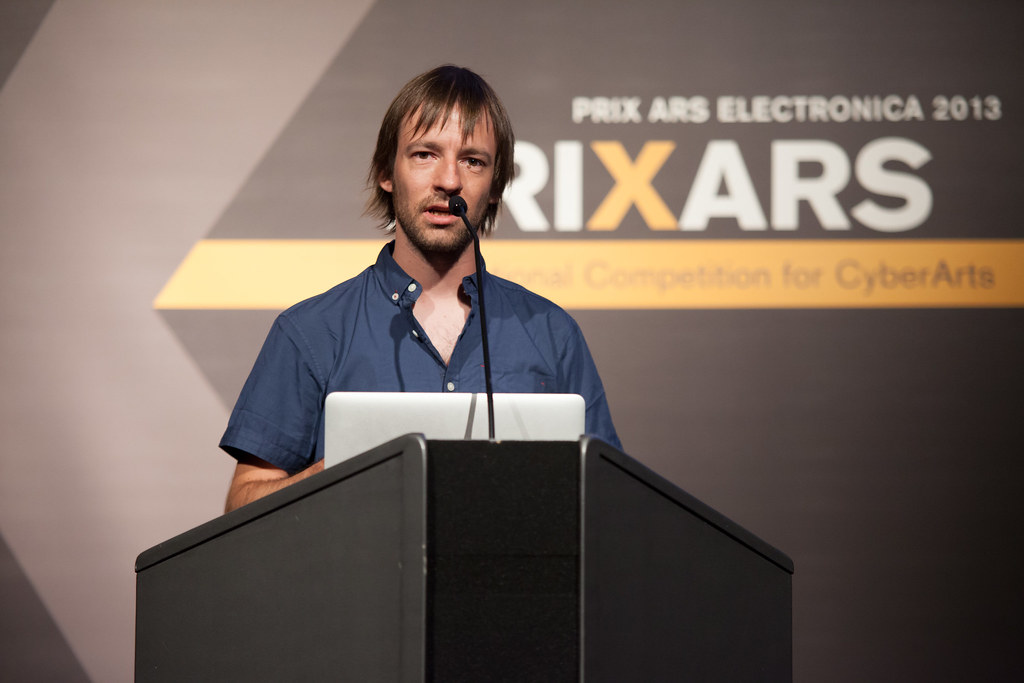
Ida Jeng (DK)
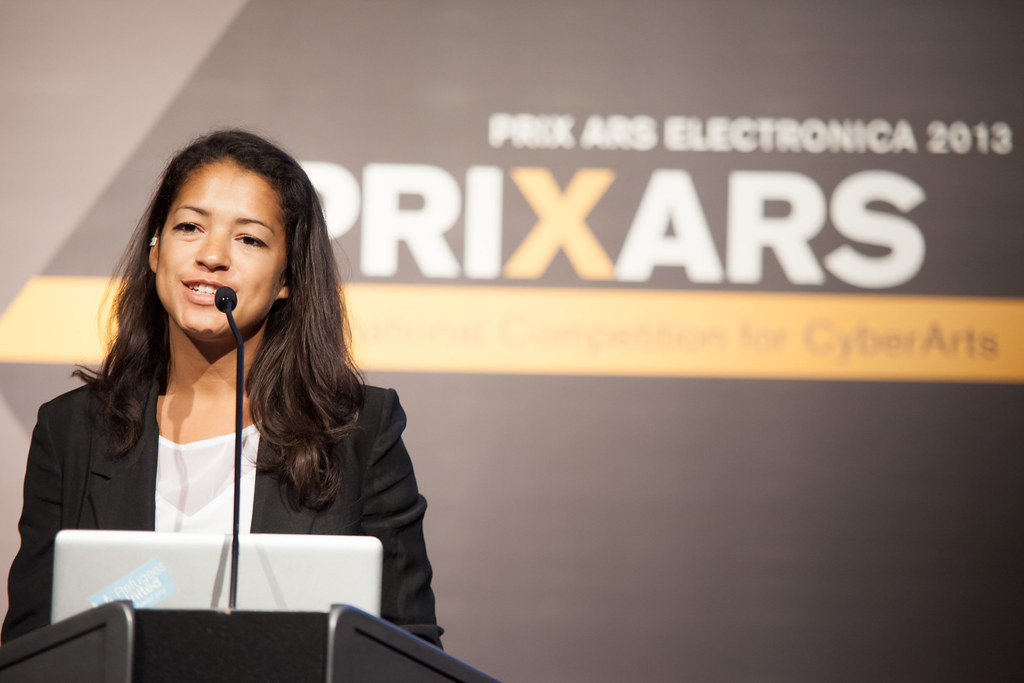
Joumana Al-Jabri (PS)
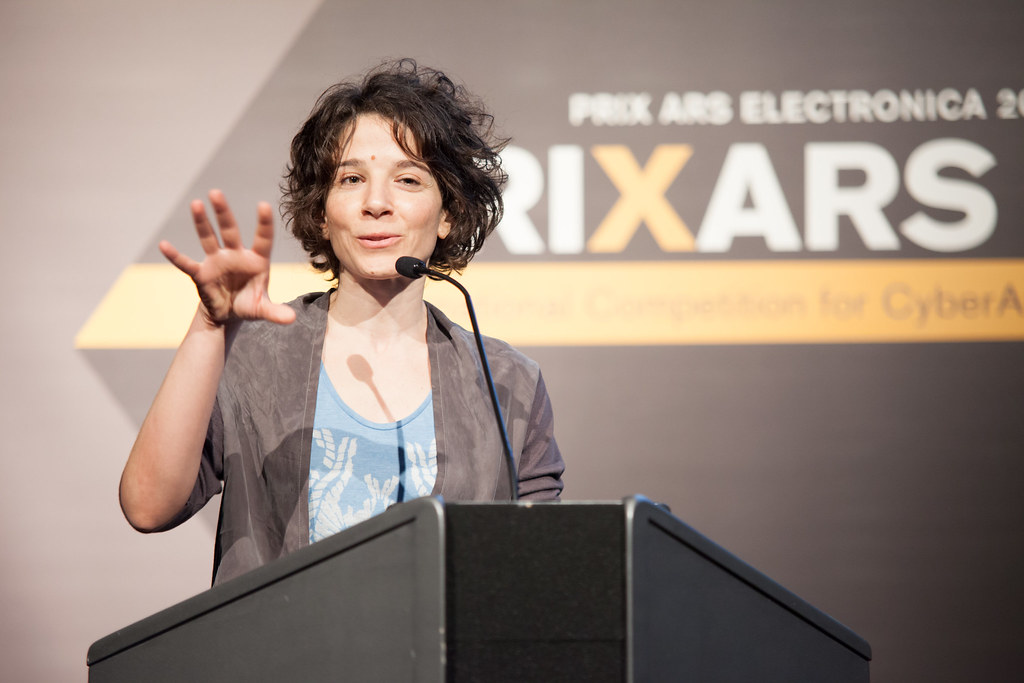
Sat 7. 9. 15:00 – 16:30
Prix Forum IV – Hybrid Art
Jurij Krpan (SI)
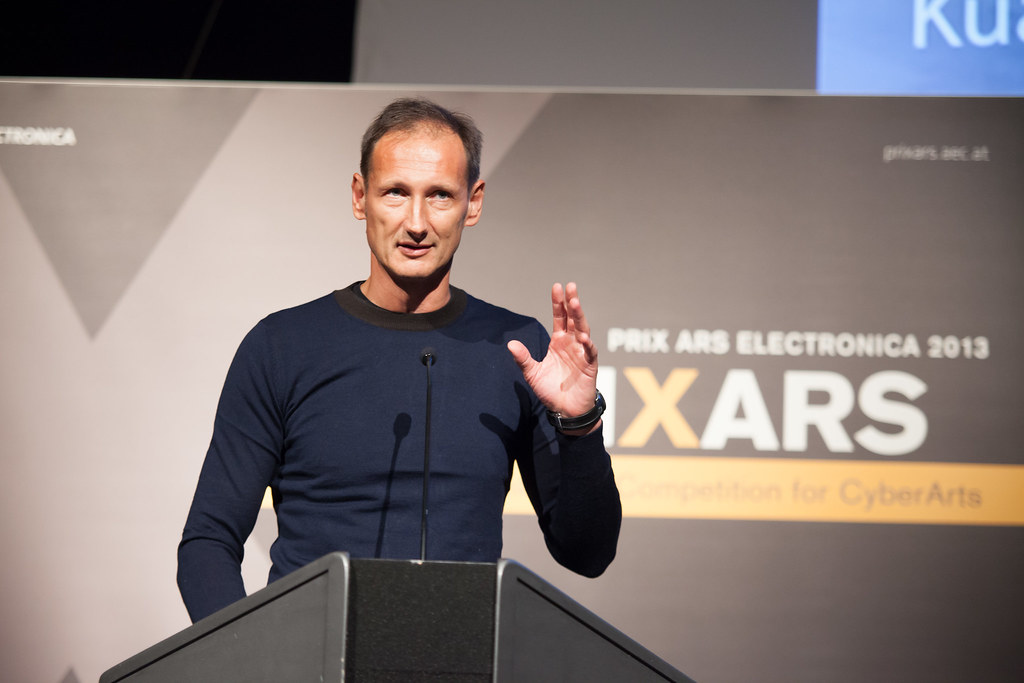
Koen Vanmechelen (BE)
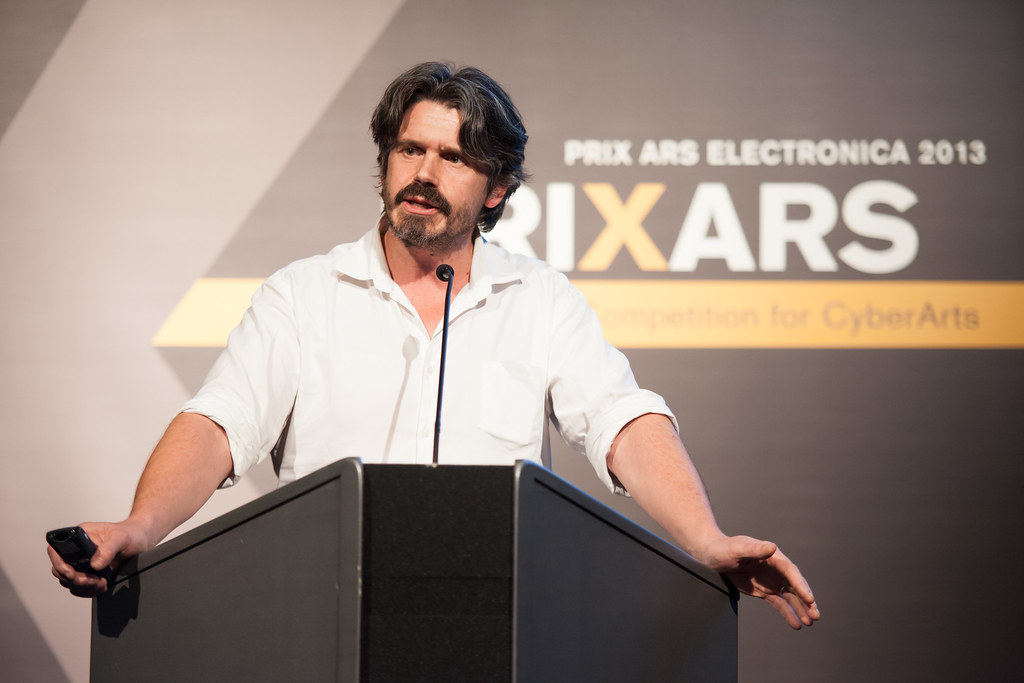
Tania Candiani (MX)
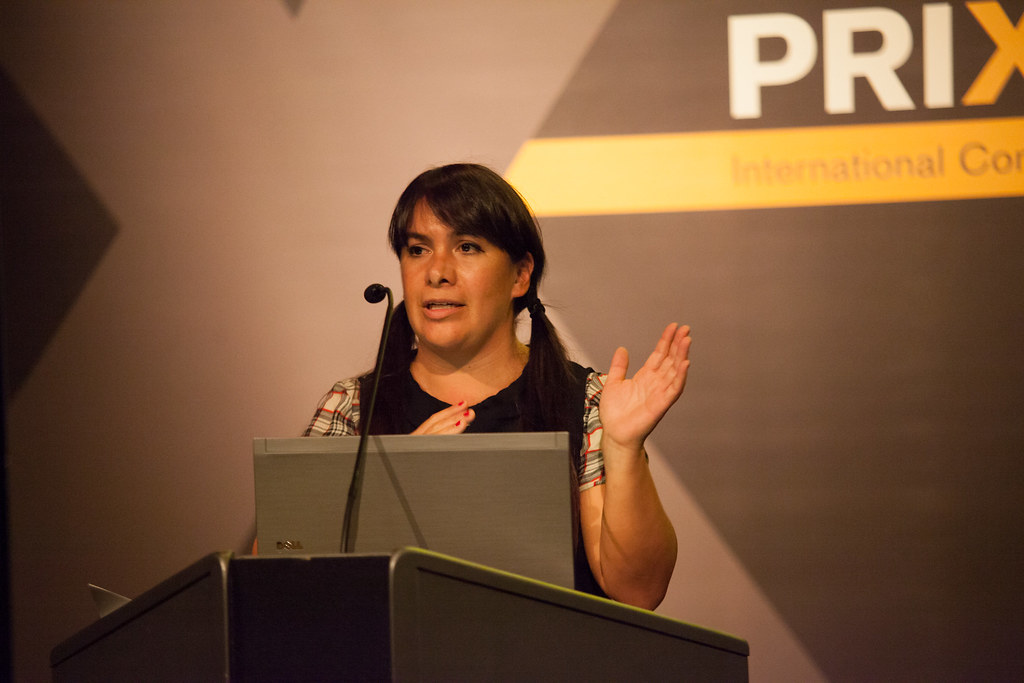
Phil Ross (US)
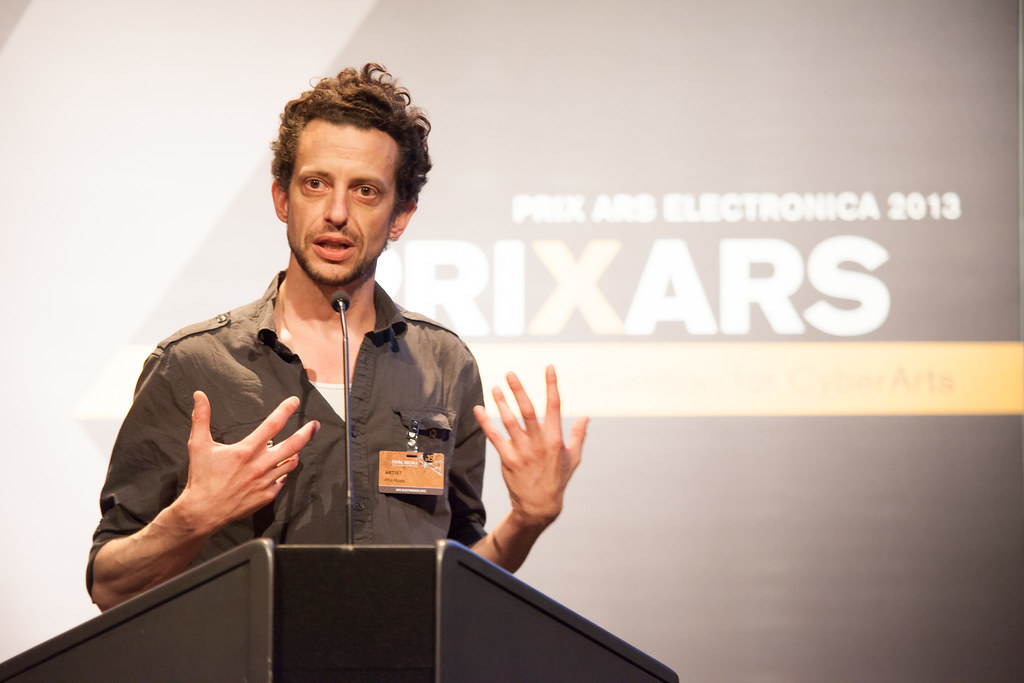
Sat 7. 9. 16:45 – 18:15
Prix Forum – All categories
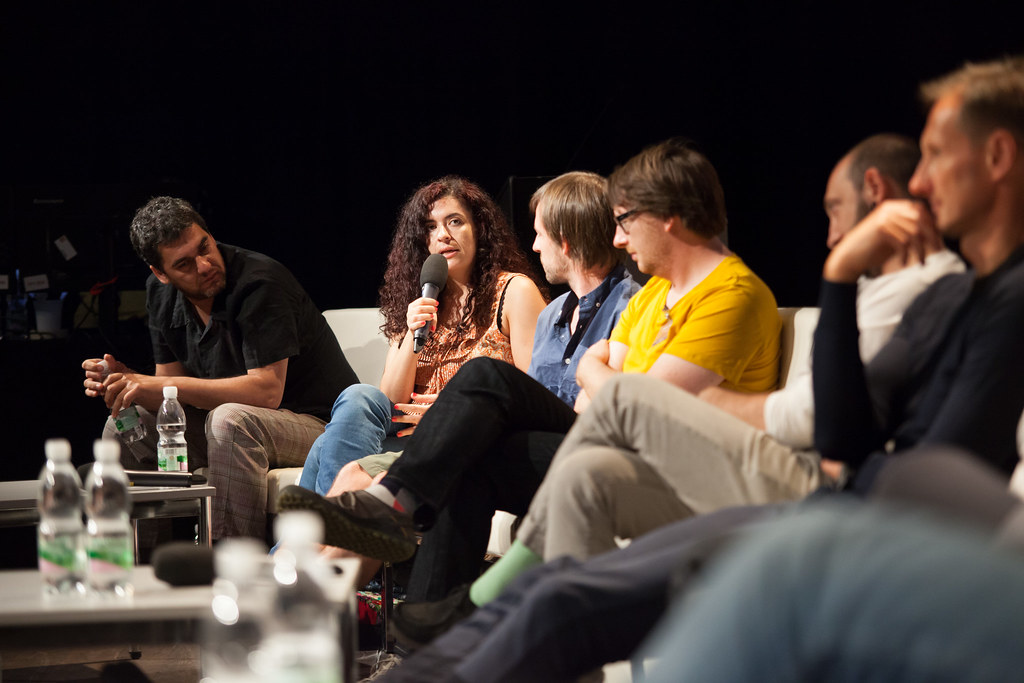
With Suzanne Buchan (CH/UK), Quayola (IT), Mariano Sardón (AR), Michel Décosterd (CH), André Décosterd (CH), Leila Nachawati (ES), El Campo de Cebada (ES), Jurij Krpan (SI), Koen Vanmechelen (BE), Electric Indigo (AT), Nicolas Bernier (CA)
Sat 7. 9. 18:30 – 19:30
Prix Forum V – Digital Musics & Sound Art
Electric Indigo (AT)
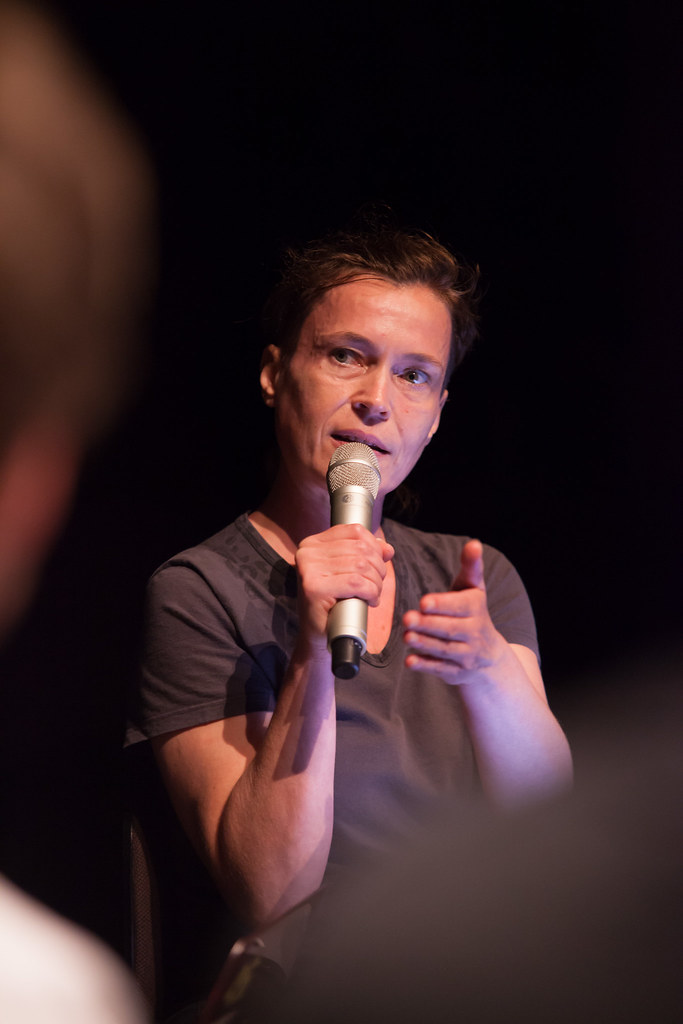
Nicolas Bernier (CA)
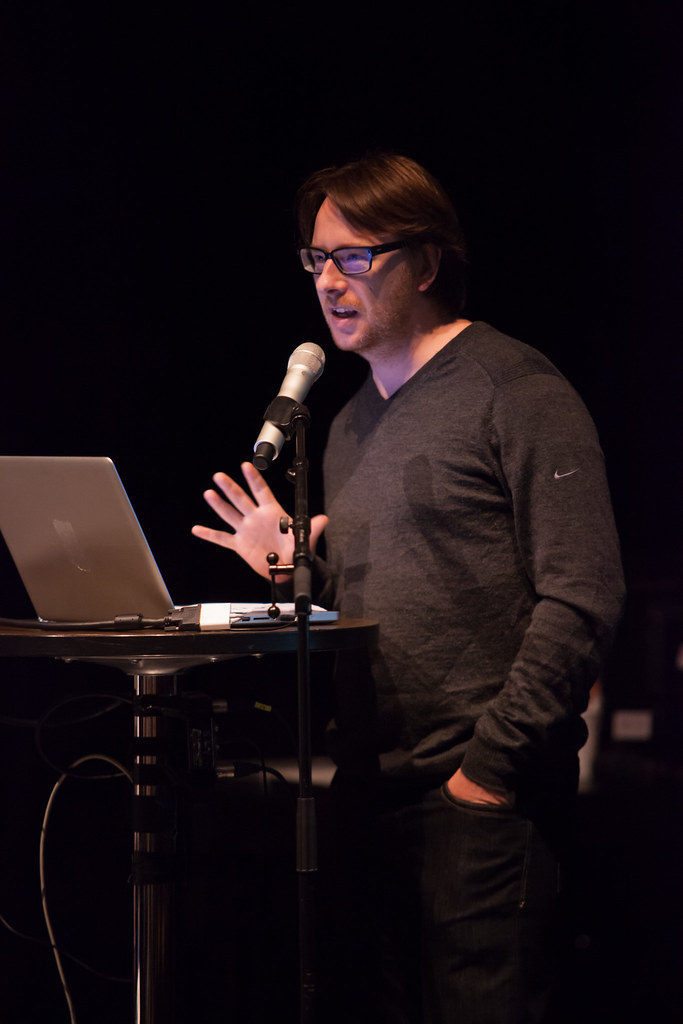
Chris Carlson (US)
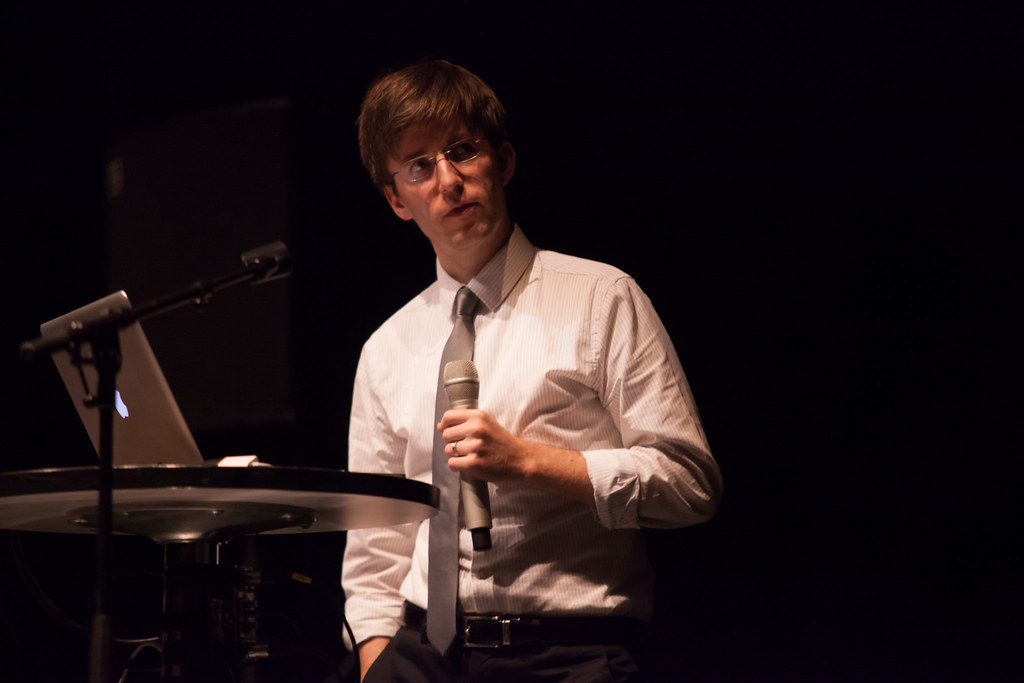
SjQ++ (JP)
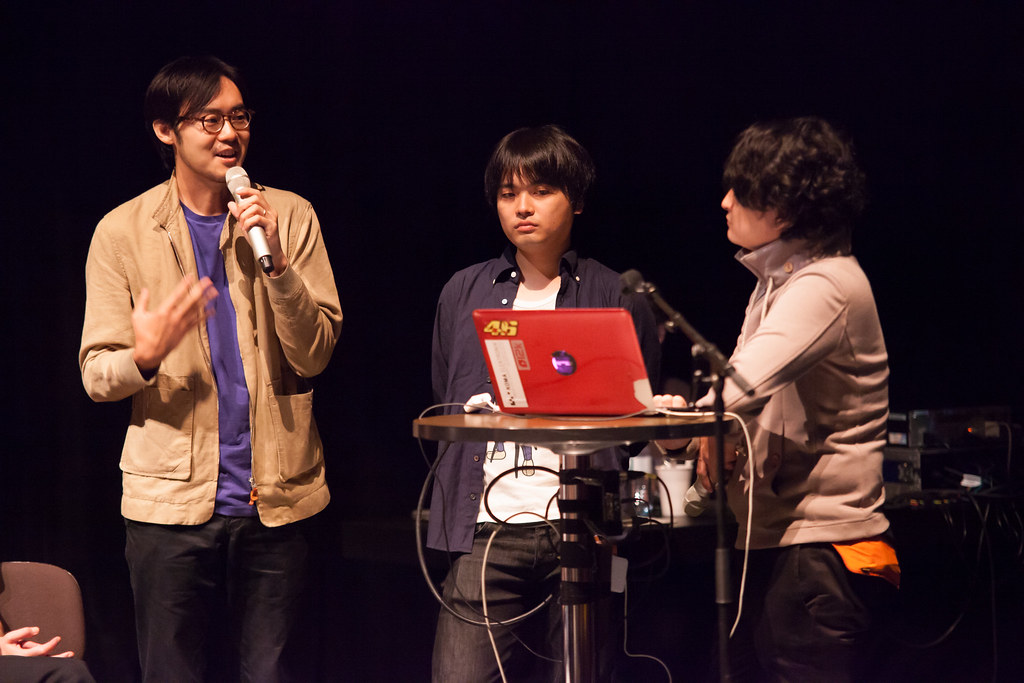
Werner Jauk (AT)
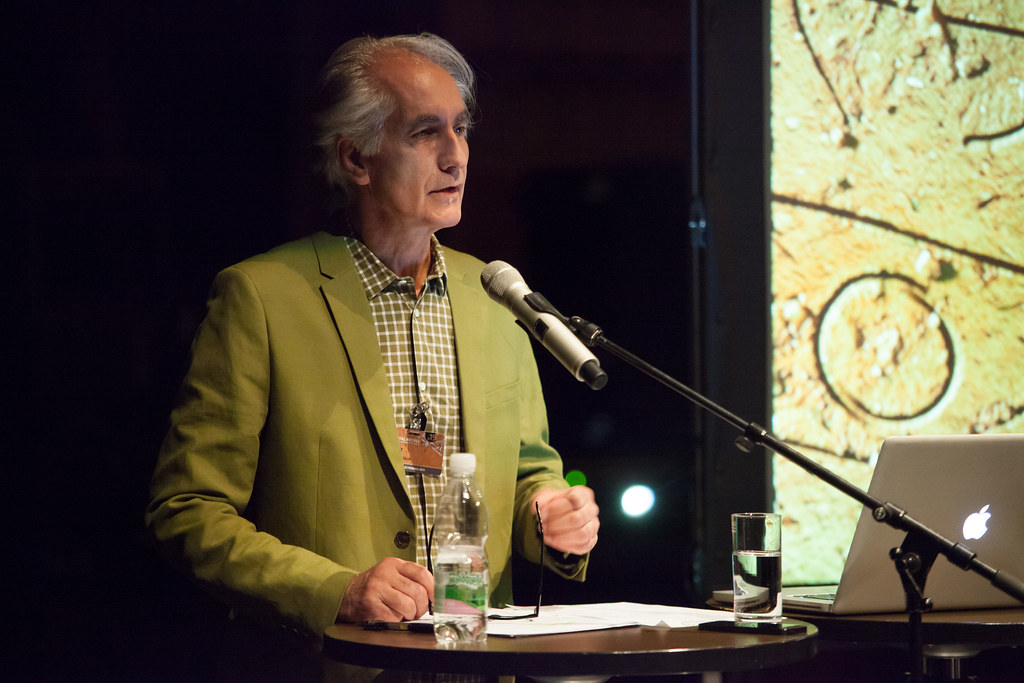
is part of the Ars Electronica Music Day
Mon 9. 9. 11:30 – 13:00
Brucknerhaus, Großer Saal
Prix Forum u19 – CREATE YOUR WORLD
Fri 06. 09. 13:30 – 14:30
Ars Electronica Center, Maindeck
Digital Musics in Concert
A concert by the prizewinners in the 2013 Prix Ars Electronica’s Digital Musics & Sound Art category—Nicolas Bernier(CA), Chris Carlson (US) and SjQ++ (JP)—wraps up Ars Electronica Music Day.
Mon 9. 9. 19:30 – 21:00
Brucknerhaus, Großer Saal
Since 2001, the Pixelspaces Conference during the Ars Electronica Festival has been a meeting place and marketplace for the international community of free-lance media artists and representatives of established media labs and institutes. The ever-more-complex interweaving of computer gaming, architecture, and virtual/augmented reality provides the thematic background for this setting for communications and display. Accordingly, topping the conference agenda are current research approaches in the artistic, scientific and technological confrontation with socially relevant issues.
4D Printing Masterclass
Fri 6.9. 12:00-16:00
FabLab, Ars Electronica Center
Join the Next Idea winners and Ars Electronica Futurelab researchers in the FabLab for an in-depth, hands-on look at the present and future possibilities designing for digital fabrication.
Moderation: Matthew Gardiner
Talks
AERN
Sat 7.9. 10:00 – 11:30
SkyLoft, Ars Electronica Center
The Ars Electronica Residency Network (AERN) is a coalition of excellence consisting of Ars Electronica Linz and prominent partner institutions all over the world that offer extraordinary opportunities and challenges for artists and scientists.
1. CERN: Ariane Koek, Bill Fontana, Subodh Patil
2. OHMI: Stephen Hetherington
3. QUT: Lubi Thomas
Moderation: Johanna Mathauer
Project Genesis Floortalk
Sat 7.9. 13:00-14:30
OG1, Ars Electronica Center
Be guided through the complex narrative and stories in Ars Electronica’s flagship exhibition Project Genesis by the curator Matthew Gardiner and artists.
Moderation: Matthew Gardiner
Inside Solutions and Inside Futurelab
Inside Ars Electronica Solutions provides exciting insights to Ars Electronica’s most recent division. Ars Electronica Solutions creates customized interactive products and services in the areas Shop Experience, Event & Show Design, Brandlands & Exhibitions and Urban Development. Besides a comprehensive presentation of project highlights, Inside Solutions demonstrates how Ars Electronica Solutions represents the final link in a process chain commencing with a visionary concept and proceeding via prototype development to culminate in an innovative product.
Inside Solutions
Sat 7.9. 12:30 – 14:30
SkyLoft, Ars Electronica Center
Inside Ars Electronica Solutions provides exciting insights to Ars Electronica’s most recent division. Ars Electronica Solutions creates customized interactive products and services in the areas Shop Experience, Event & Show Design, Brandlands & Exhibitions and Urban Development. Besides a comprehensive presentation of project highlights, Inside Solutions demonstrates how Ars Electronica Solutions represents the final link in a process chain commencing with a visionary concept and proceeding via prototype development to culminate in an innovative product.
12:30 – 12:45: Introduction: Ars Electronica Solutions, Michael Badics (AT), Senior Director AES
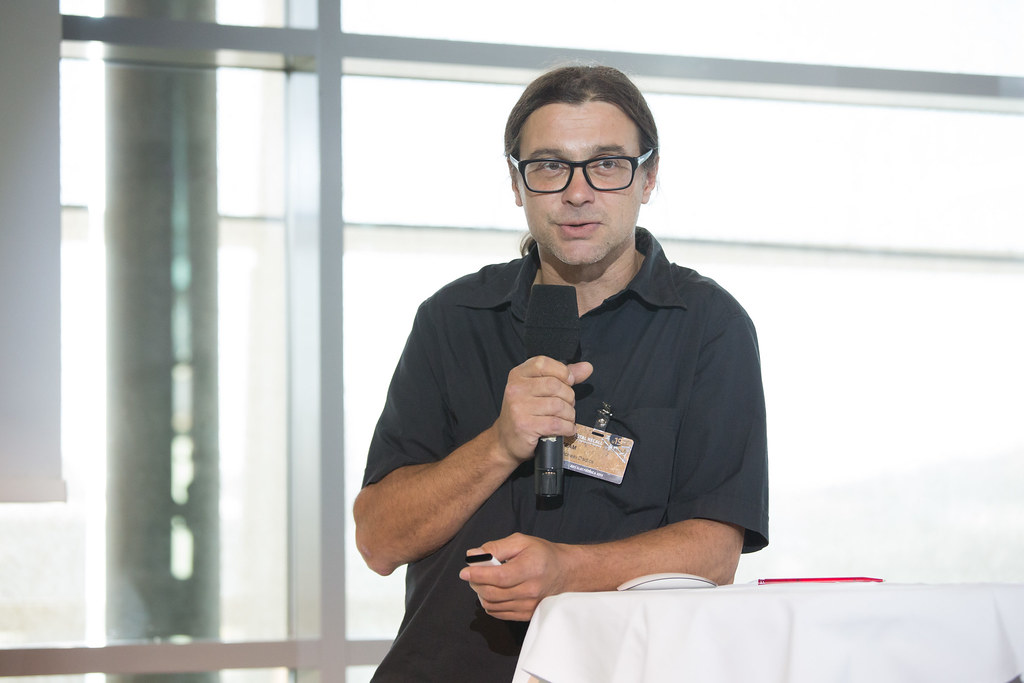
12:45 – 13:15: Event & Show Design: Liebherr, Schattdecor, Le Sacre du Printemps, Stephan Pointner (AT), Project Manager AES; Vanessa Schauer (AT), Project Manager AES; Cecile Bucher (AT/CH), Engineering / Creative Technologies
13:15 – 13:40: Brandlands & Exhibitions: MED-EL, Kathrin A. Meyer (DE/AT), Director Brandlands & Exhibitions
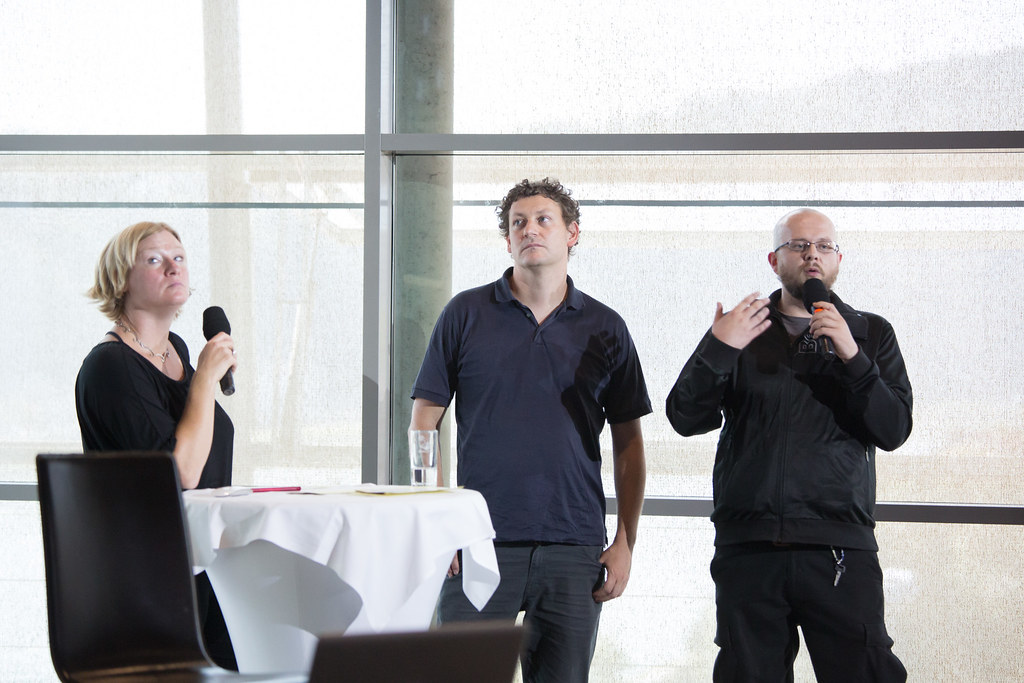
13:40 – 14:05: Shop Experience: Umdasch/RAG-Wall, Michael Badics (AT), Senior Director AES; Barbara Hinterleitner (AT), Project Management
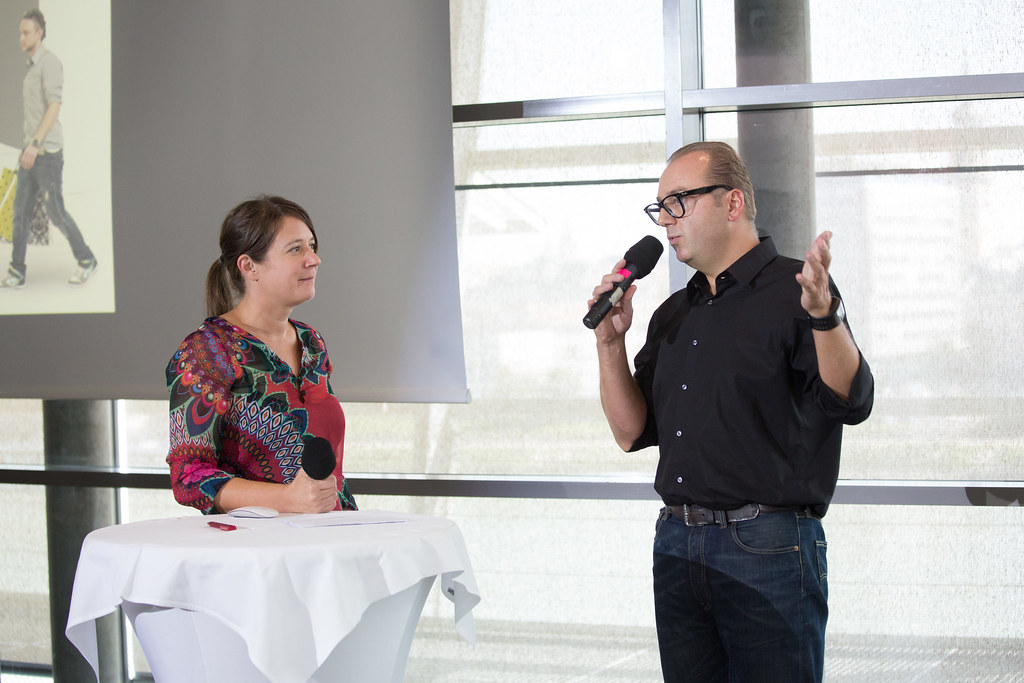
14:05 – 14:30: Urban Development: GeoPulse Fribourg, Harald Moser (AT), Urban Media Development
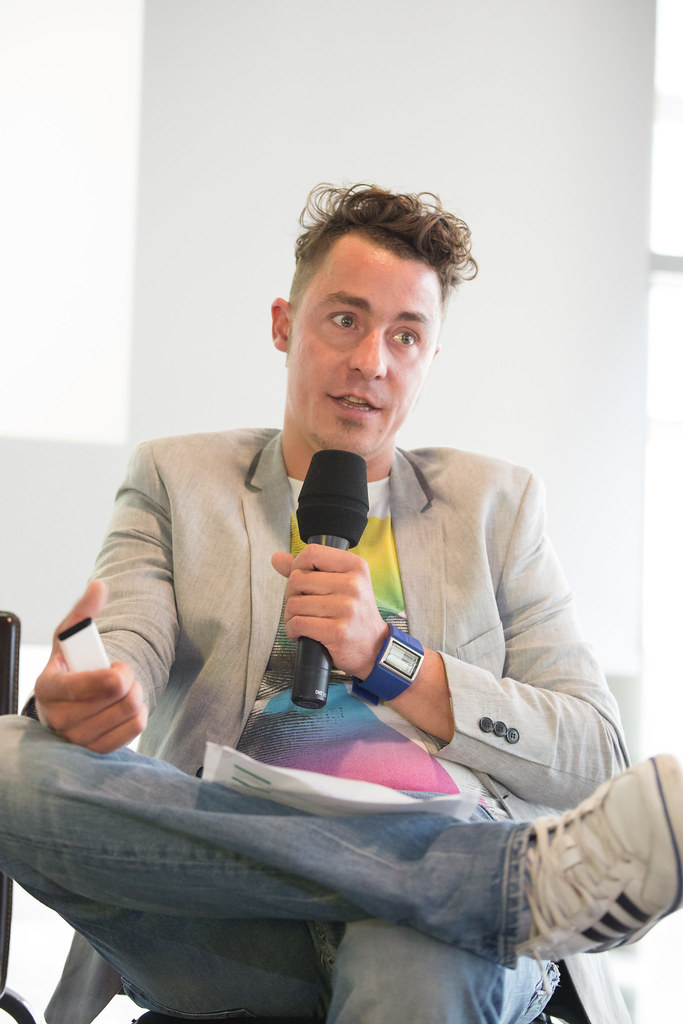
Inside Futurelab
Sa 7.9. 15:00 – 17:00
SkyLoft, Ars Electronica Center
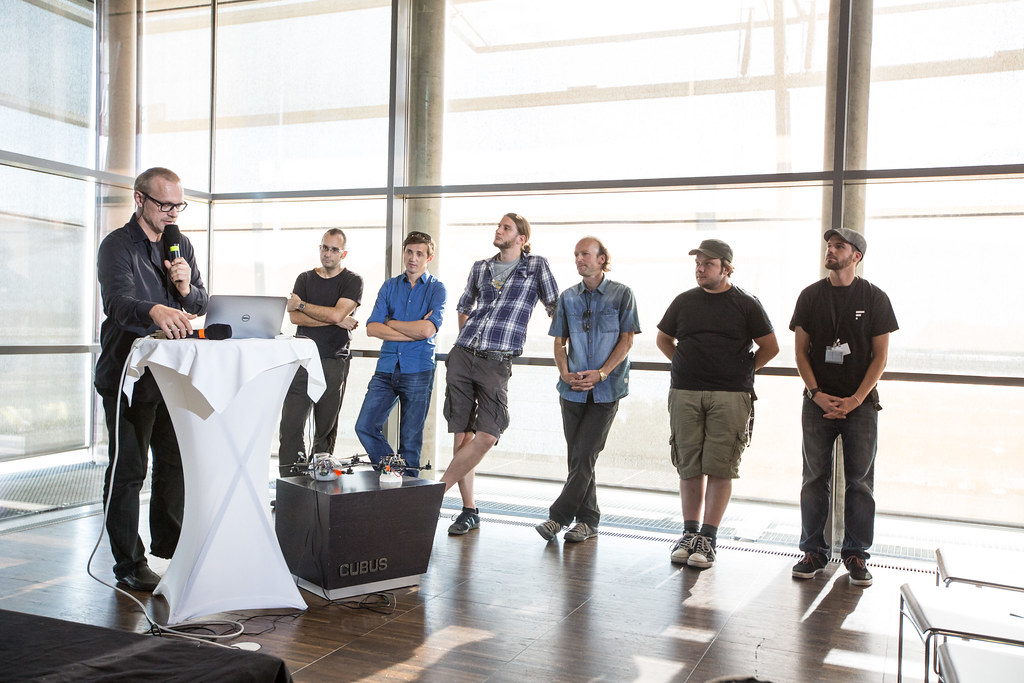
Hideaki Ogawa: Ars Electronica Creative Cloud Osaka
Kristefan Minski: Bienenstock
Benjamin Mayr: Virtual Cosmos
Martina Mara: Hakuhodo x Ars Innovation Catalysts
Patrick Müller: Nitsch – Schein und Sein
Hideaki Ogawa: Elekit Candlescape
Veronika Pauser: OpenAIR
Roland Aigner: Resonate
Matthew Gardiner: Project Genesis
Michael Mayr: Tosca
Patrick Müller: Miraikan Your-Cosmos
Martin Mörth, Andreas Jalsovec: Spaxels – The Sky is no Limit
Floortalk Futurelab Academy
Sat 7.9. 18:00 – 19:00
u19 – CREATE YOUR WORLD – Festivalstadt
Ars Electronica Futurelab Academy was created to support students from international partner universities to realize innovative projects in the field of media art. The format’s unique features contain the Ars Electronica Futurelab’s expertise and the possibility to participate in the Ars Electronica Festival.
Queensland University of Technology:
Jeniffer Heng, Vidhi Shah: Flow[er]
Michael Hiley, Declan Brincat, Yonghan Ji: Pixel Streets
Alice Brown, Andy Bates : Trail of Traits
Moderation: Horst Hörtner and Prof. Jared Donovan
University of Newcastle
Prof. Richard Vella: PhD Program with Ars Electronica
Moderation: Horst Hörtner
Expanded Animations - Mapping an Unlimited Landscape
What used to be clearly defined borders between genres and varieties of digital animation have disappeared. E
xpansionist tendencies are apparent everywhere. Digital Expanded Animation (www.expandedanimation.com) is a conference for experts from around the world—students, teachers, artists and theoreticians—to exchange ideas about the blurring of borders, peripheral areas, and trends/future developments in the field of computer animation. Participants will view and discuss, in particular, experimental and hybrid forms in a broad, interdisciplinary field at the nexus of art, industry, R&D and science.
Indroduction & Welcome
09:40 – 10:00 Jürgen Hagler & Alexander Wilhelm / Expanded Digital Animation
Exploration 1 // Mapping the Landscape: Theory and Art
10:00 – 10:40 Suzanne Buchan / Pervasive Animation
10:40 – 11:20 Virgil Widrich / in/out – digital/analog Bilder zwischen digitalem Realismus und analoger Glaubwürdigkeit
11:20 – 11:40 Short Coffee Break
11:40 – 12:30 John Gerrard / John Gerrard / Exercise
12:30 – 14:00 Lunch Break
Exploration 2 // Collapsing Boundaries: Performance, Interaction and Data Narration
14:00 – 14:30 Karin Wehn / Conquering New Ground: Animation on the Move
14:30 – 15:00 Friedrich Kirschner / Computer Animation in a Performance Context
15:00 – 15:30 Joreg / Completing Reality – About Rmperceptible Realtime Computer Graphics
15:30 – 16:00 Benjamin Wiederkehr / Thoughts on Animation in Information Visualization
16:00 – 16:30 Coffee Break
Exploration 3 // Unlimited Fields: Transformation and Interpretation
16:30 – 17:25 Semiconductor / A-Z of Noise
17:25 – 18:20 Quayola / Memo Akten / Hybrid Spaces of Animated Painting and Sculpture
http://www.expandedanimation.com/
Thu 5. 9.
Lentos Kunstmuseum Linz
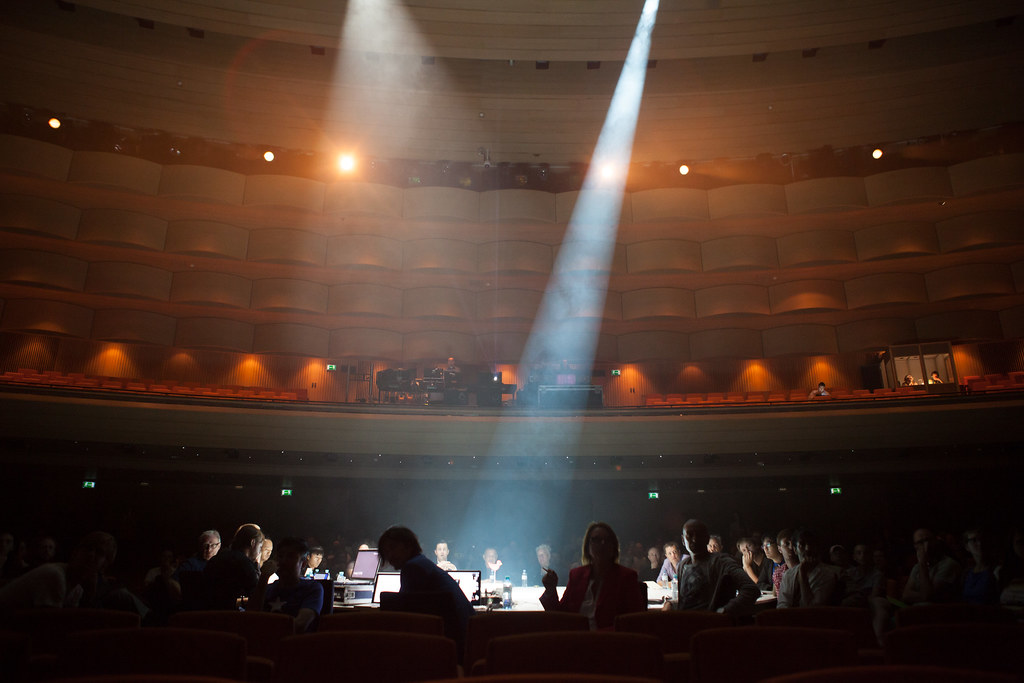
Musicians, artists and curators from all over the world are getting together to engage ideas about the future prospects of live entertainment. The rapid development of interactive technologies in recent years has put many new tools into the hands of musicians and performing artists to conceive and produce new show formats.
What will take hold?
Totally new forms of interplay involving performers and audience members are emerging. What possibilities is this opening up? Which ones will entertainers use and how will they deal with them? In short: What will the rock show of the future be like?
A Chat with OK Go
Members of the rock band OK Go and Ars Electronica Futurelab staffers will discuss whether the boundaries separating presentation and participation will disappear, and how audience involvement can be configured without diverting attention from what’s happening on stage.
10:30 – 12:00 Future Entertainment Inspiration (OK Go)
12:15 – 13:00 Ikono (Alexander Schellow, Elizabeth Markevitch)
14:00 – 15:30 Future Entertainment (OK Go)
Sun 8. 9. 10:30
Brucknerhaus, Mittlerer Saal
Ars Electronica, Evangelisches Diakoniewerk Gallneukirchen (AT)
Conditions like Alzheimer’s disease affect sufferers’ short-term memory, thought processes, speech, mobility and, in some cases, even their personality structure. The progressive loss of memory (and self-control) is a drastic and currently irreversible change that is a severe blow to the victim as well as his/her loved ones. The 2013 Ars Electronica Festival and the Evangelisches Diakoniewerk Gallneukirchen invite festivalgoers to deal with the subject of dementia, which, in light of our aging society, might well become extremely widespread in the future.
Meet Someone with First-hand Experience

Helga Rohra (DE), a woman suffering from dementia, will attend the TOTAL RECALL symposium. The interpreter and author had the courage to go public with her condition. She’ll give an account of life with Lewy-Body-Dementia.
Fri 6. 9. 12:50
Brucknerhaus
Musical Remembrance
Acoustic memories—for instance, recollections of certain pieces of music—are among the forms of stored information that endure the longest. Ars Electronica und Diakonie Gallneukirchen cordially invite you to an entertaining afternoon featuring coffee, cake and Musical Remembrance. Meet people suffering from dementia who are receiving care at the Diakoniewerk’s centers in Gallneukirchen, Linz and Wels.
Attention: Limited capacity!
Sat, 7. 9. 15:00-17:00
Altes Rathaus
Afternoon Info Session: Dementia. Living with Forgetting
How does dementia manifest itself, what is everyday life with dementia like and what does providing care to dementia sufferers entail? Neurologist Klaus-Dieter Kieslinger (AT), gerontologist/psychologist Alexander Aschenbrenner (AT) and Sylvia Boubenicek (AT), head of a daycare center for people with dementia, will address these questions.
Sun 8. 9. 16:00
Ars Electronica Center, Sky Media Loft
Austrian Film – New Generation, New Media, New Horizons
Austrian Film Academy (AT)
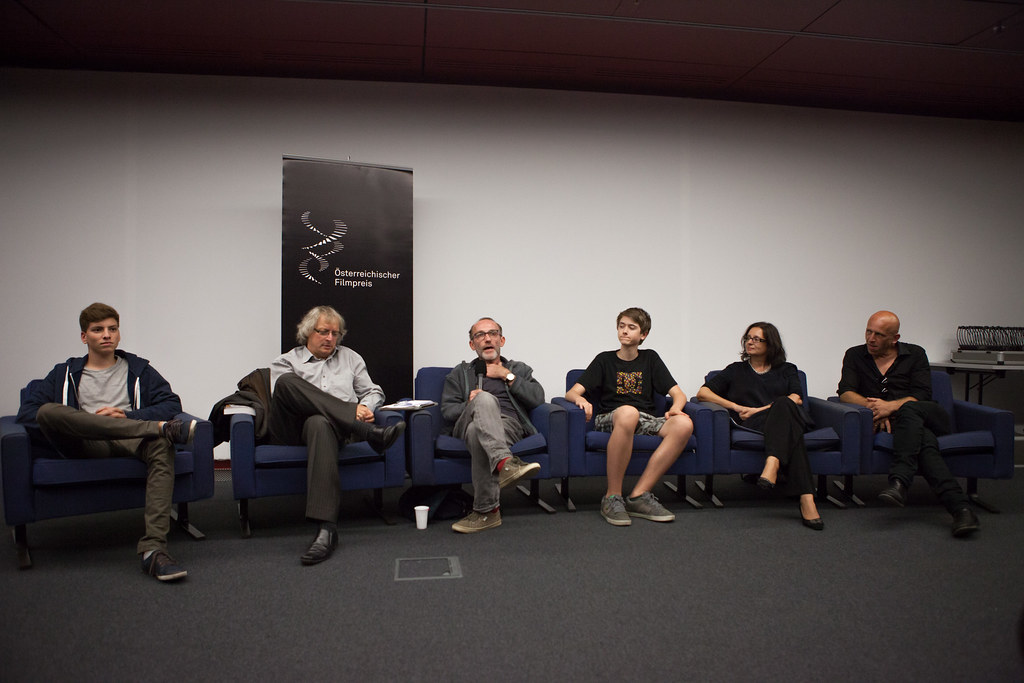
Young designers’ approaches to this no-longer-young medium will be the subject of an open discussion moderated by actor/director Karl Markovics (AT). What accounts for audiences’ unbroken fascination with the cinema? How and why do member of Generation 2000 fall under its spell? Panelists include film producer and teacher Danny Krausz (AT), Young Animations curator Sirikit Amann (AT), u19-CREATE YOUR WORLD Prix Ars Electronica prizewinners Florian Bührle (AT) and Isidor Dietrich (AT) as well Martin Honzik (AT), head of Ars Electronica Festival and Prix Ars Electronica.
In Kooperation mit dem/in cooperation with Fachverband der Film-und Musikindustrie (AT). Die Akademie des Österreichischen Films wird unterstützt von/the Austrian Film Academy is supported by bmukk, ÖFI, bmwfj, FISA, BMmeiA, Kulturamt Stadt Wien, F&MA, WKO Wien, VDFS, VAM, Vienna Film Commission, Erste Bank, VIG, Listo Videofilm, AI-Film, epo-film, Satel Film, AAFP, Film Austria, von vielen KooperationspartnerInnen/Sponsoren und ihren Mitgliedern.
Fri 6. 9. 15:00
Ars Electronica Center, Maindeck
Ars Electronica Center, FabLab
Candlescape
Candlescape is a media art construction kit for an LED candle powered by a solar cell. Workshop participants can use it to configure an animated world. Inside the candle, there are two inscribable backlit discs that trigger a poetic play of light and shadow. The illuminated object developed by Elekit (JP) and the Ars Electronica Futurelab is so cleverly designed that intuition alone suffices to fine-tune the rotation speed and brightness.
Thu 5.9. 10:00 – 18:00
Fri 6.9. 10:00 – 11:30
Sat 7.9. – Mon 9.9. 10:00 – 18:00
Glitch Embroidery
Nukeme (JP)
Glitch Embroidery is a computer-controlled embroidery machine that works with the overwritten data of such a device. The damaged code interrupts the flow of the needles’ activity and produces small imperfections. These glitches, the outcome of data that despite being damaged are still legible, are applied to the embroidered fabric.
Thu 5. 9 13:00
Sat 7 .9 13:00
Hyperform-Workshop
2013 [the next idea] voestalpine Art and Technology Grant winners Marcelo Coelho (BR), Skylar Tibbits (US), Natan Linder (IL) and Yoav Reches (IL) join Matthew Gardiner (AU/AT) from the Ars Electronica Futurelab to demonstrate Hyperform, their innovative 3-D printing process to produce foldable elements.
Fri, 6. 9. 12:00-16:00
Back to top
This is an opportunity for workshop talks with and presentations by key co-producers, partners and associates of the 2013 Ars Electronica Festival.
One is Zaragoza Ciudad del Conocimiento (ES), a Spanish foundation that received support from Ars Electronica in launching Paseo Project, its program to come up with new ideas for communication in and with Saragossa.
There will also be encounters with artists involved in the big Wir sind hier collective project, with Taiwanese media artists whose works are on display in Schizophrenia Taiwan 2.0, and their Japanese and Israeli counterparts involved in the Japan Media Arts Festival show and this year’s Campus exhibition, IL(L) Machine.
Sat 7. 9. 13:00
Ars Electronica Center, Seminarraum
